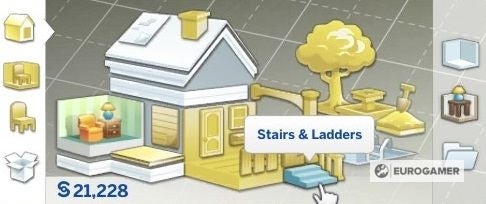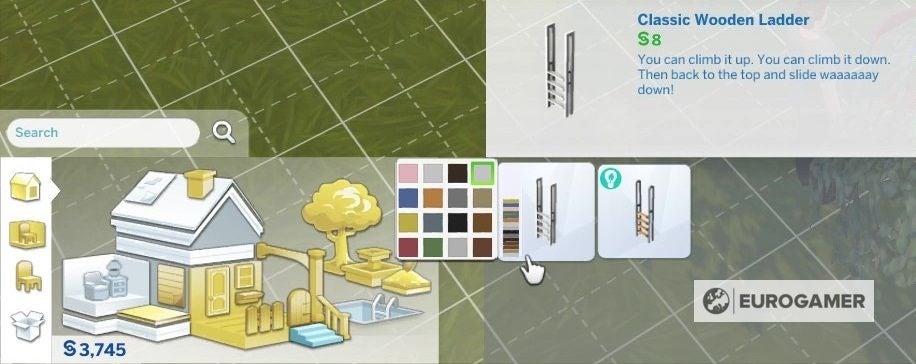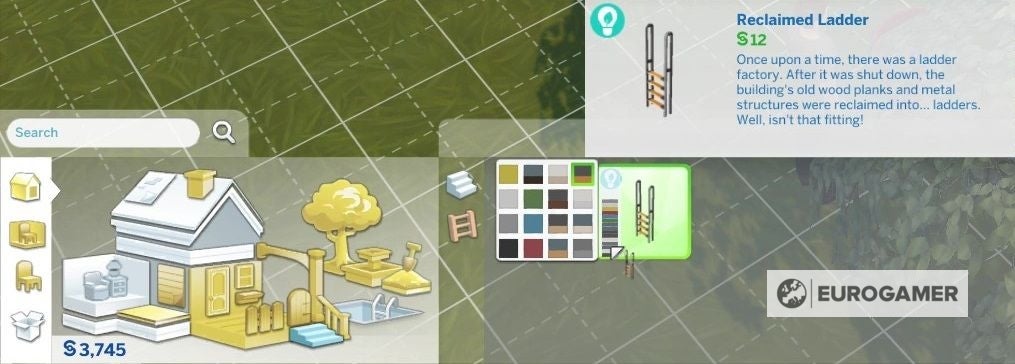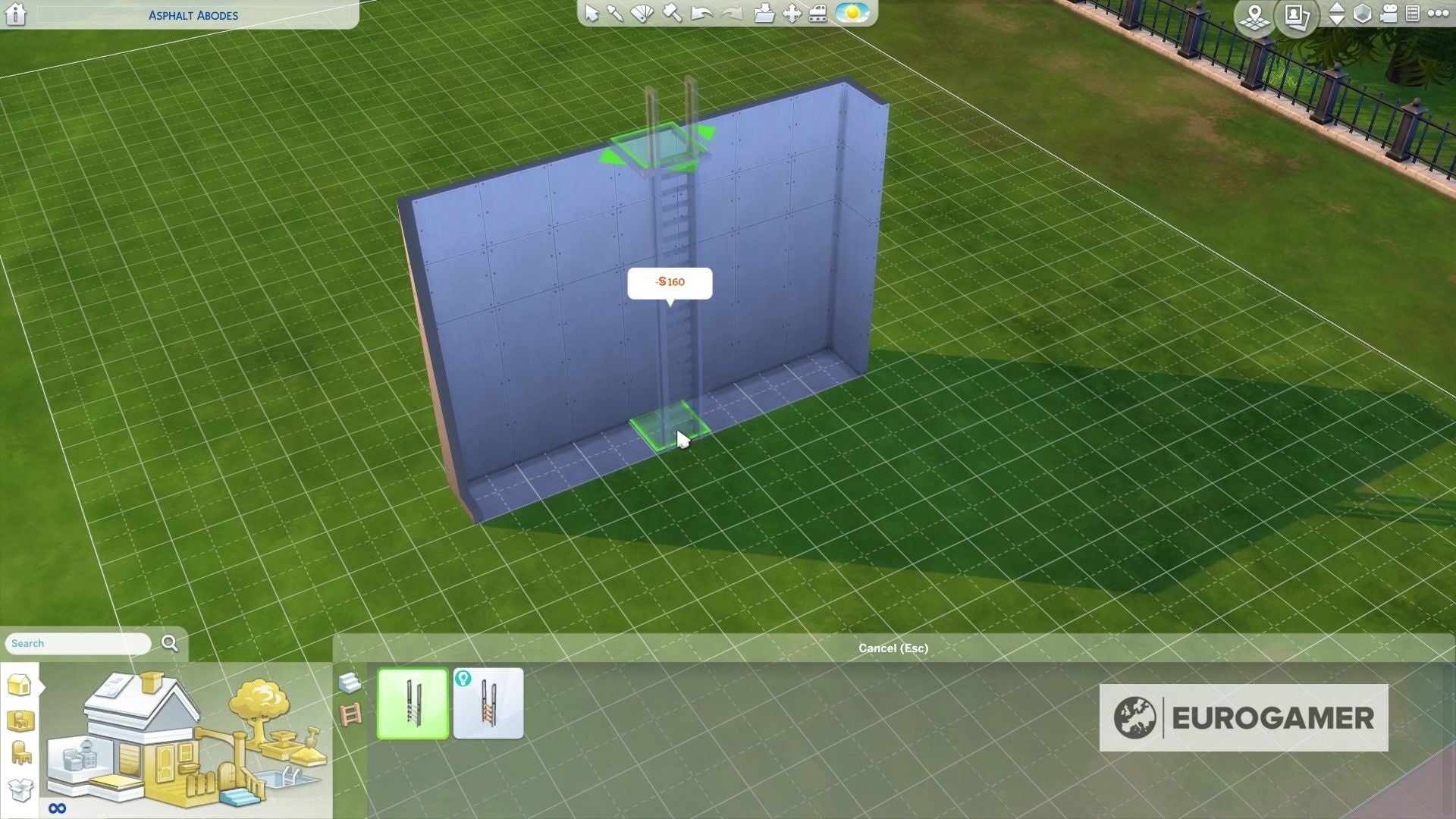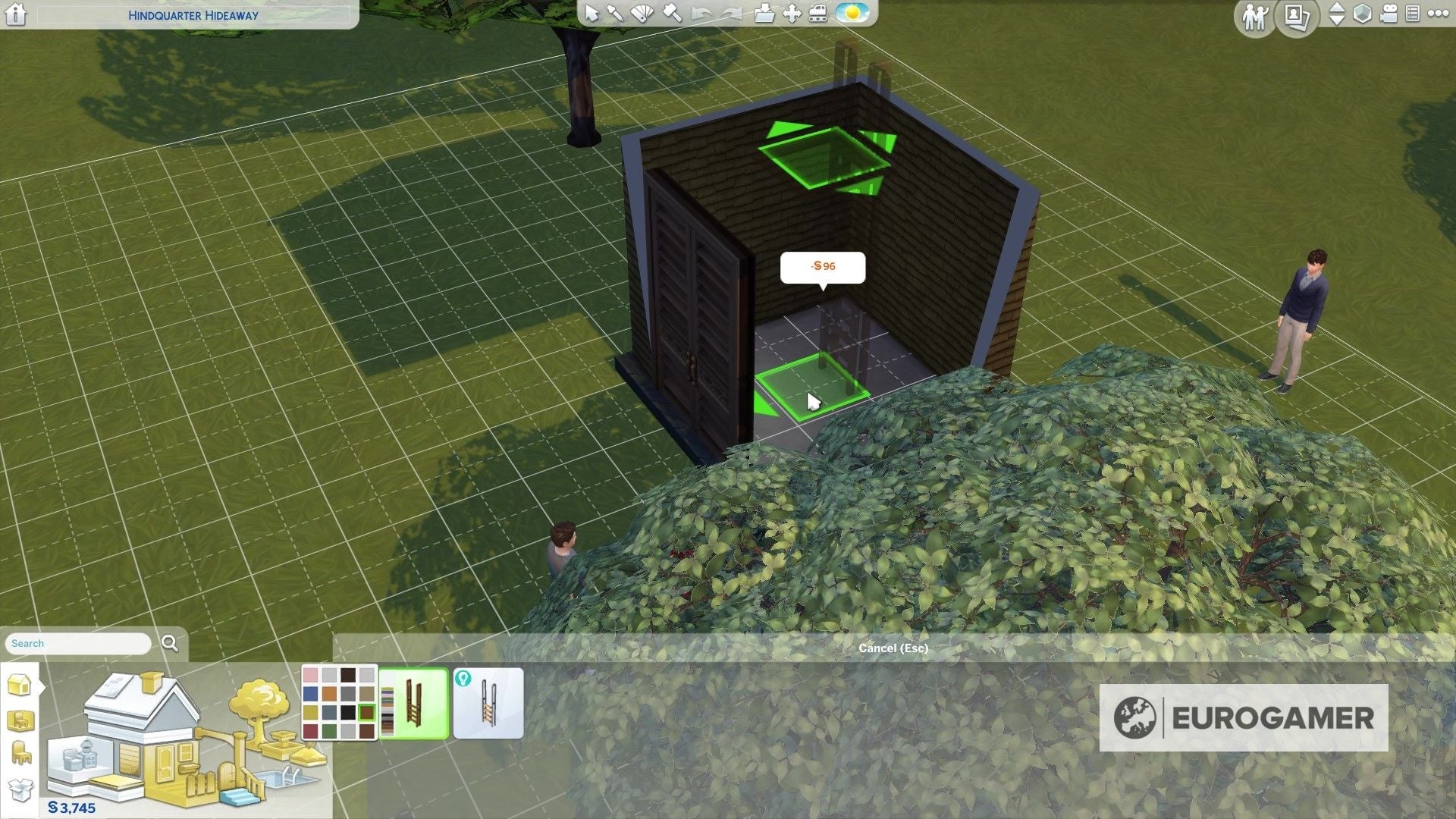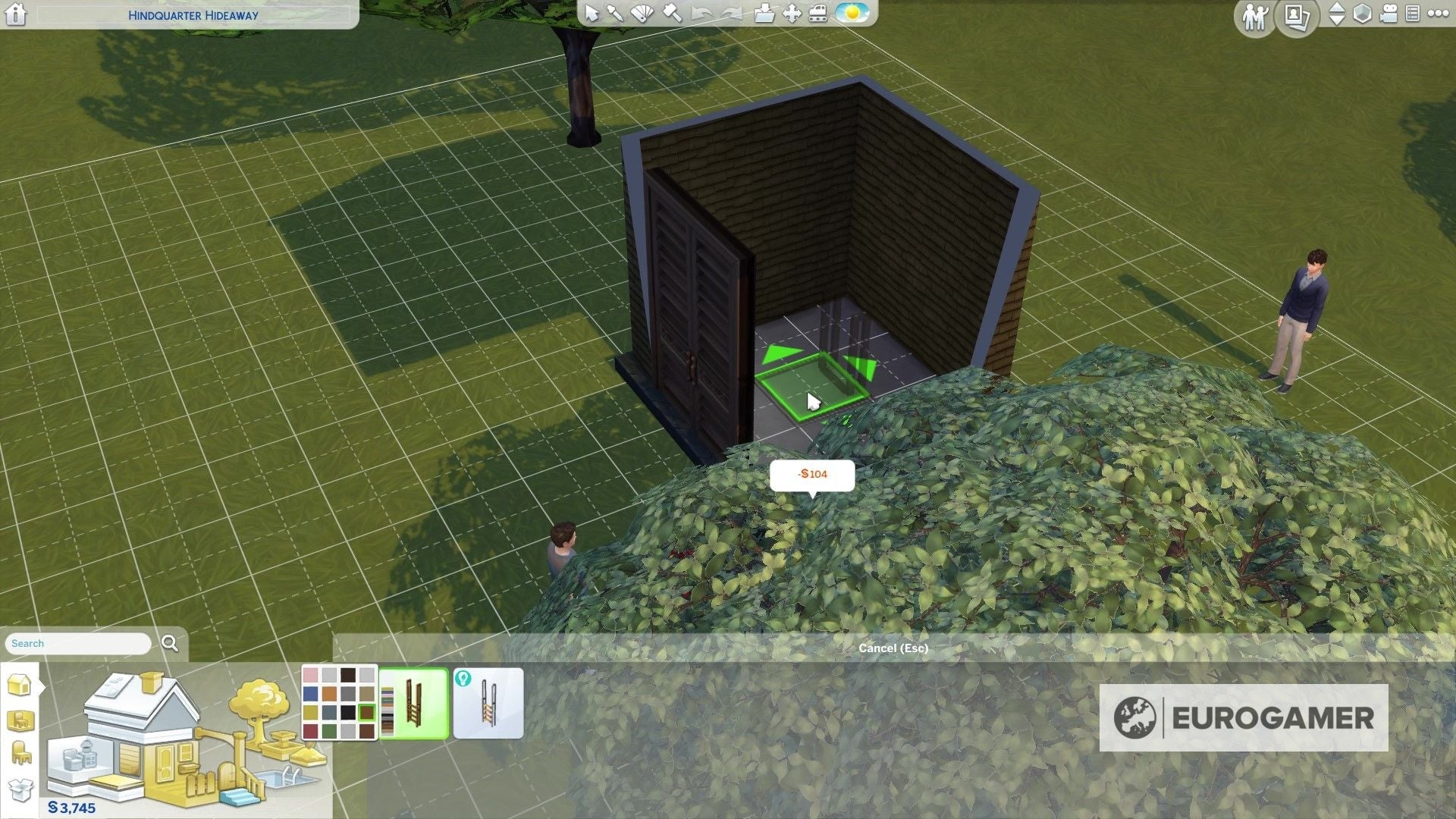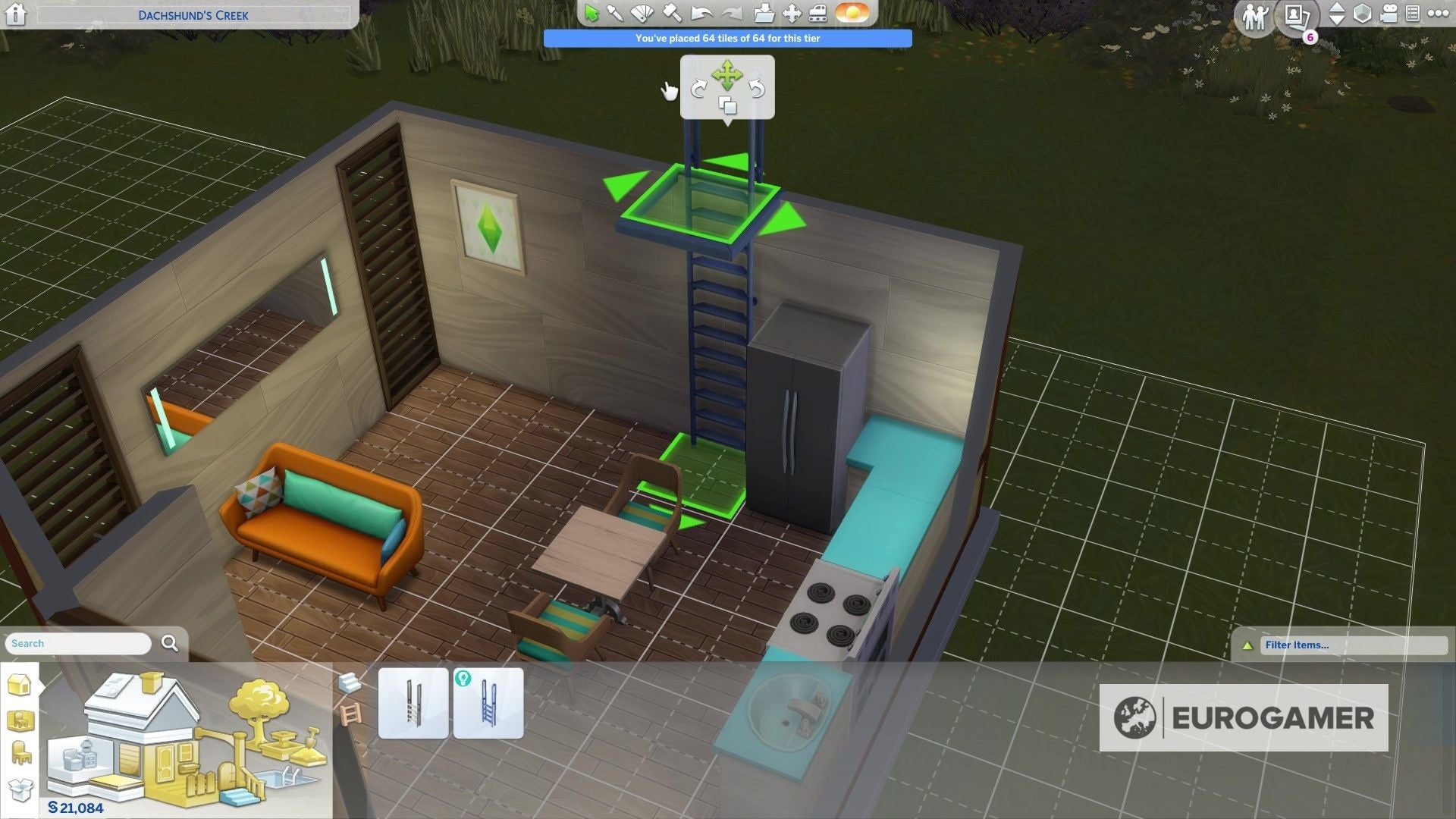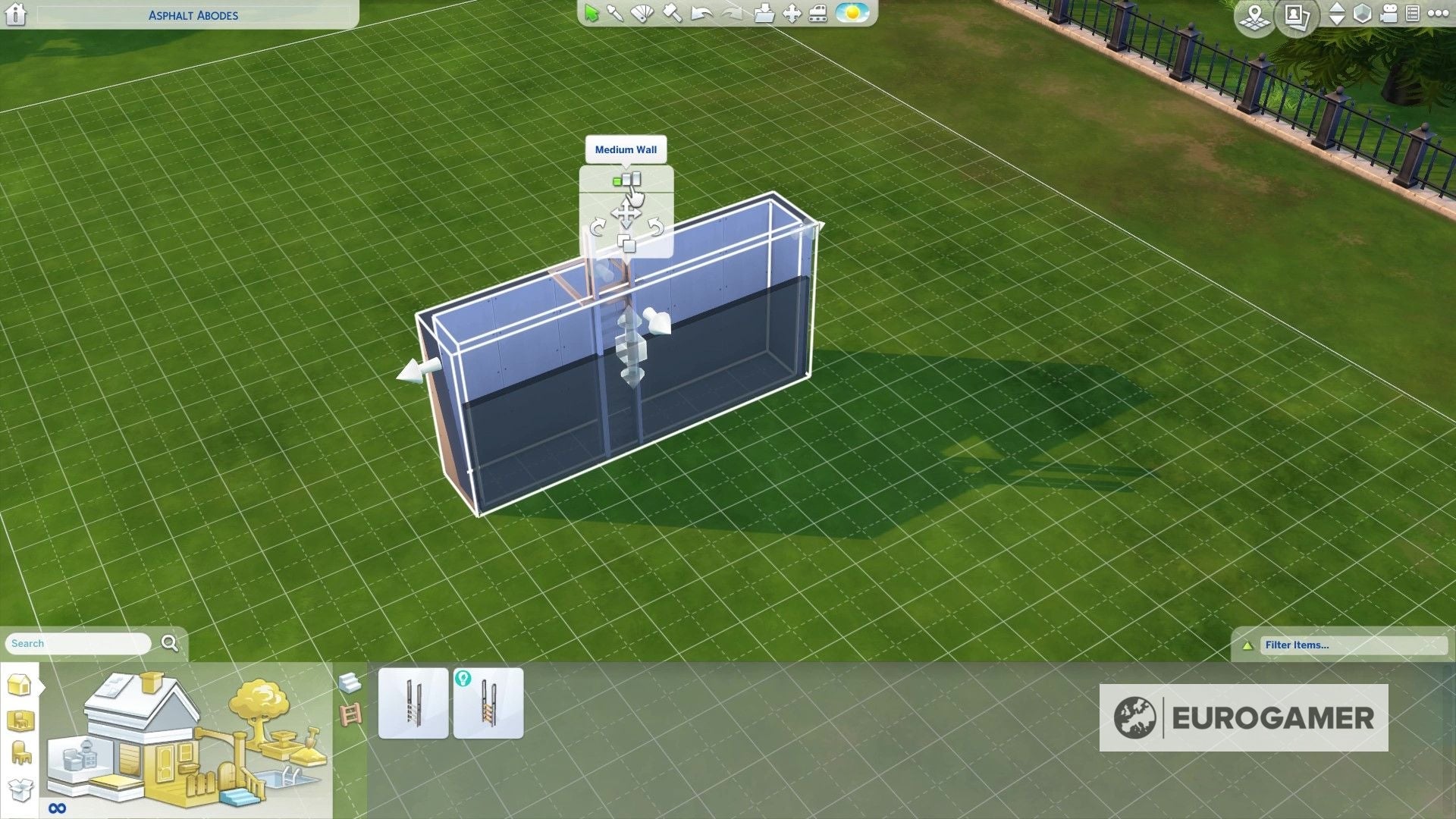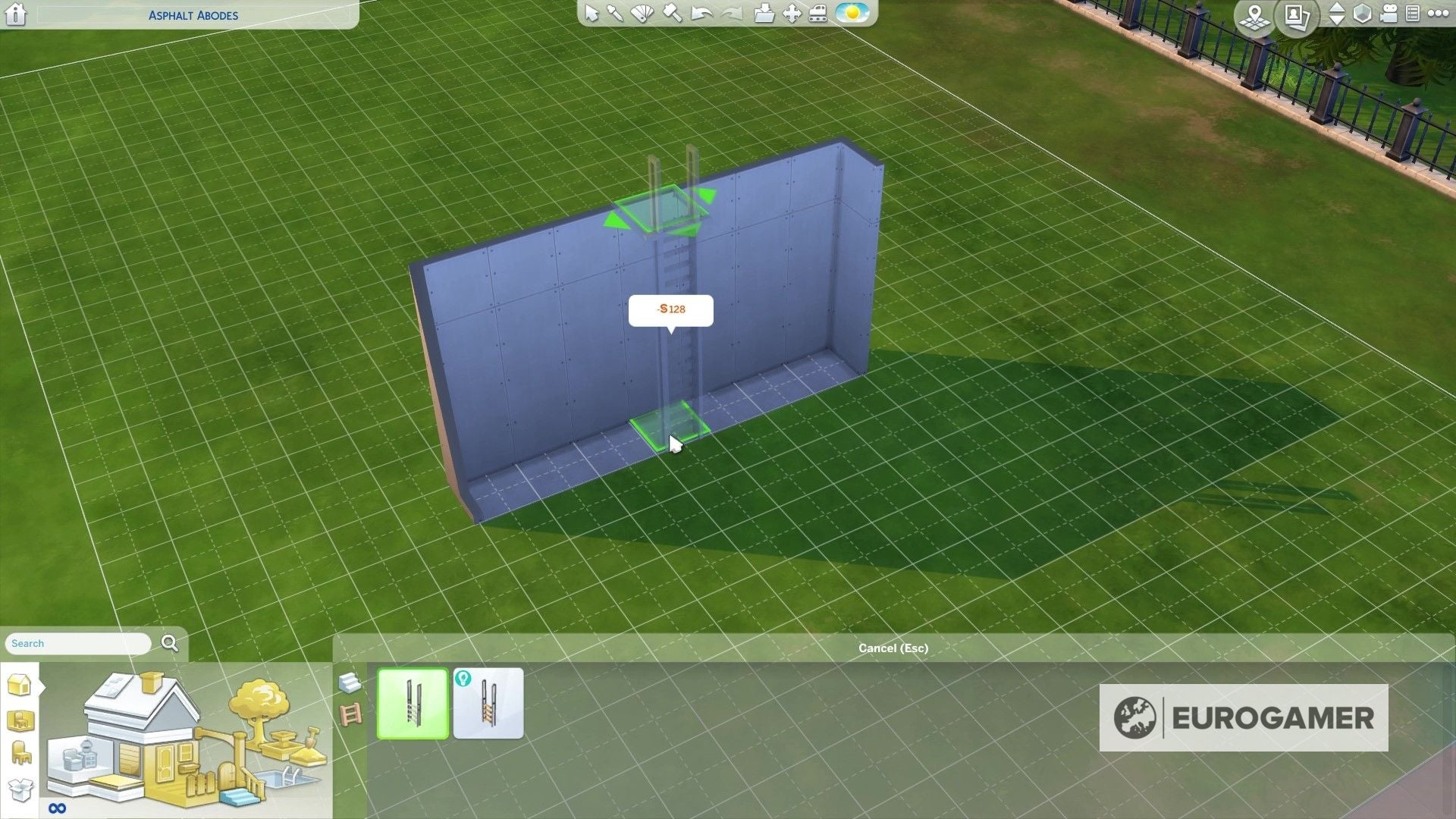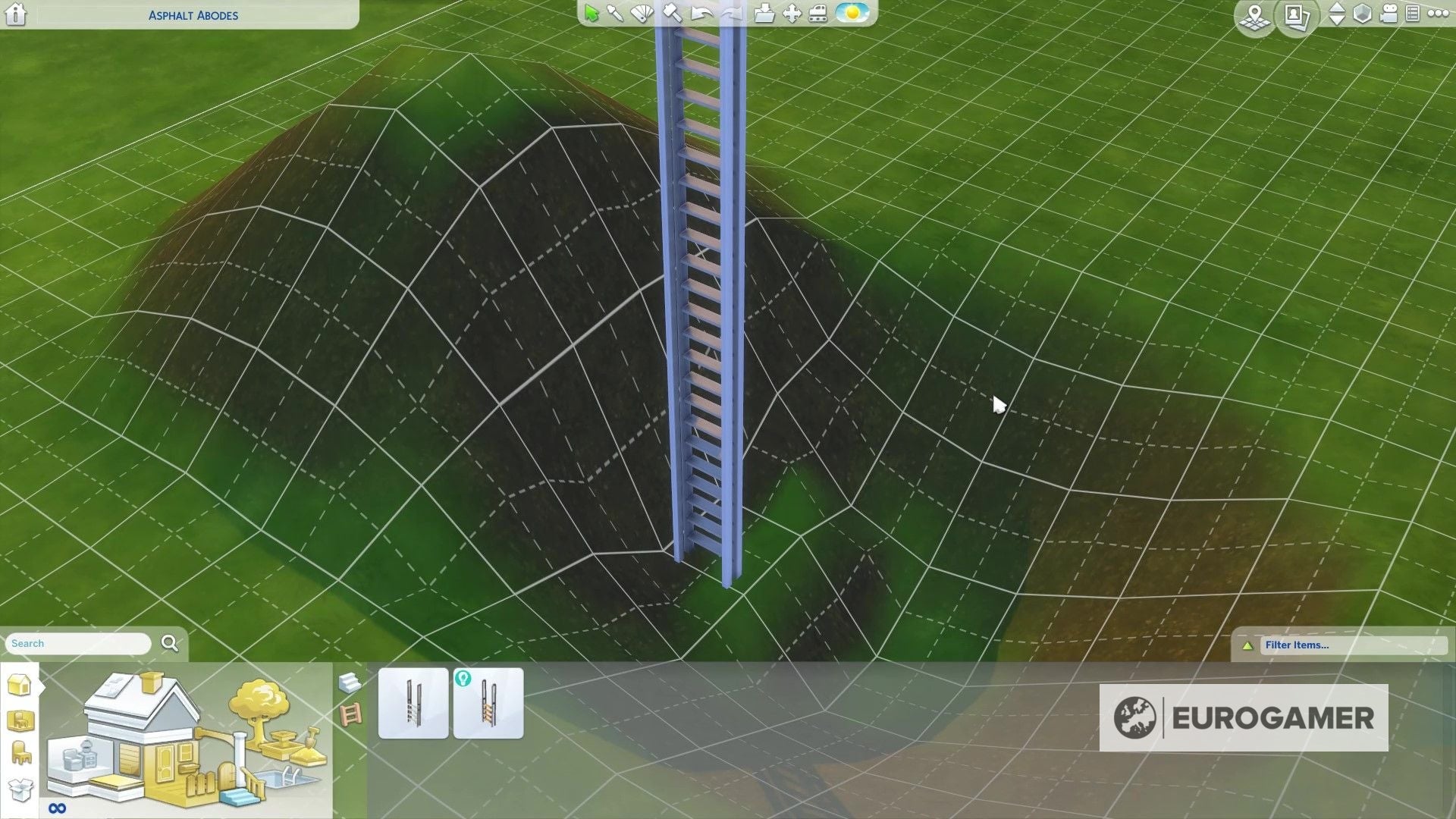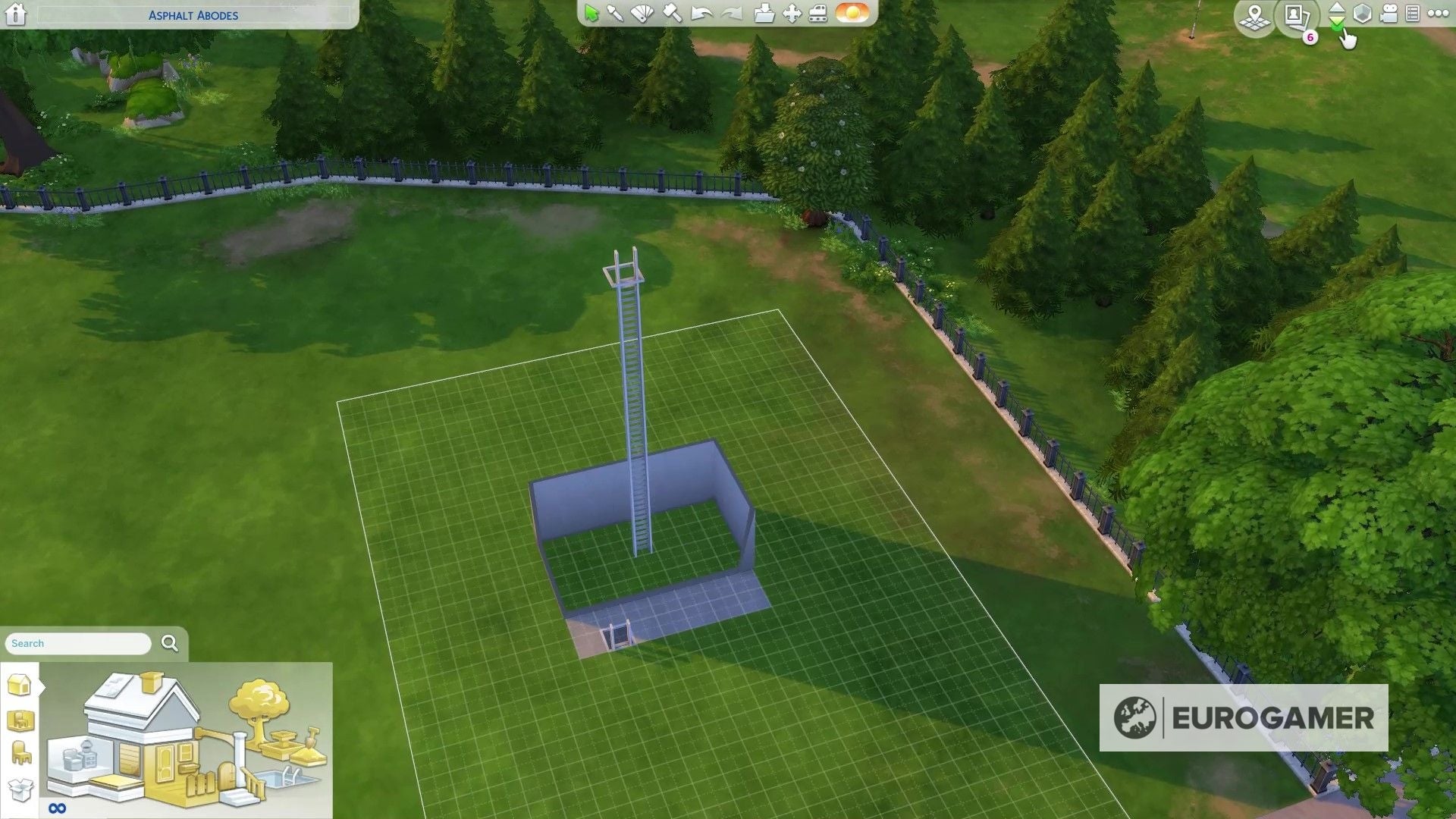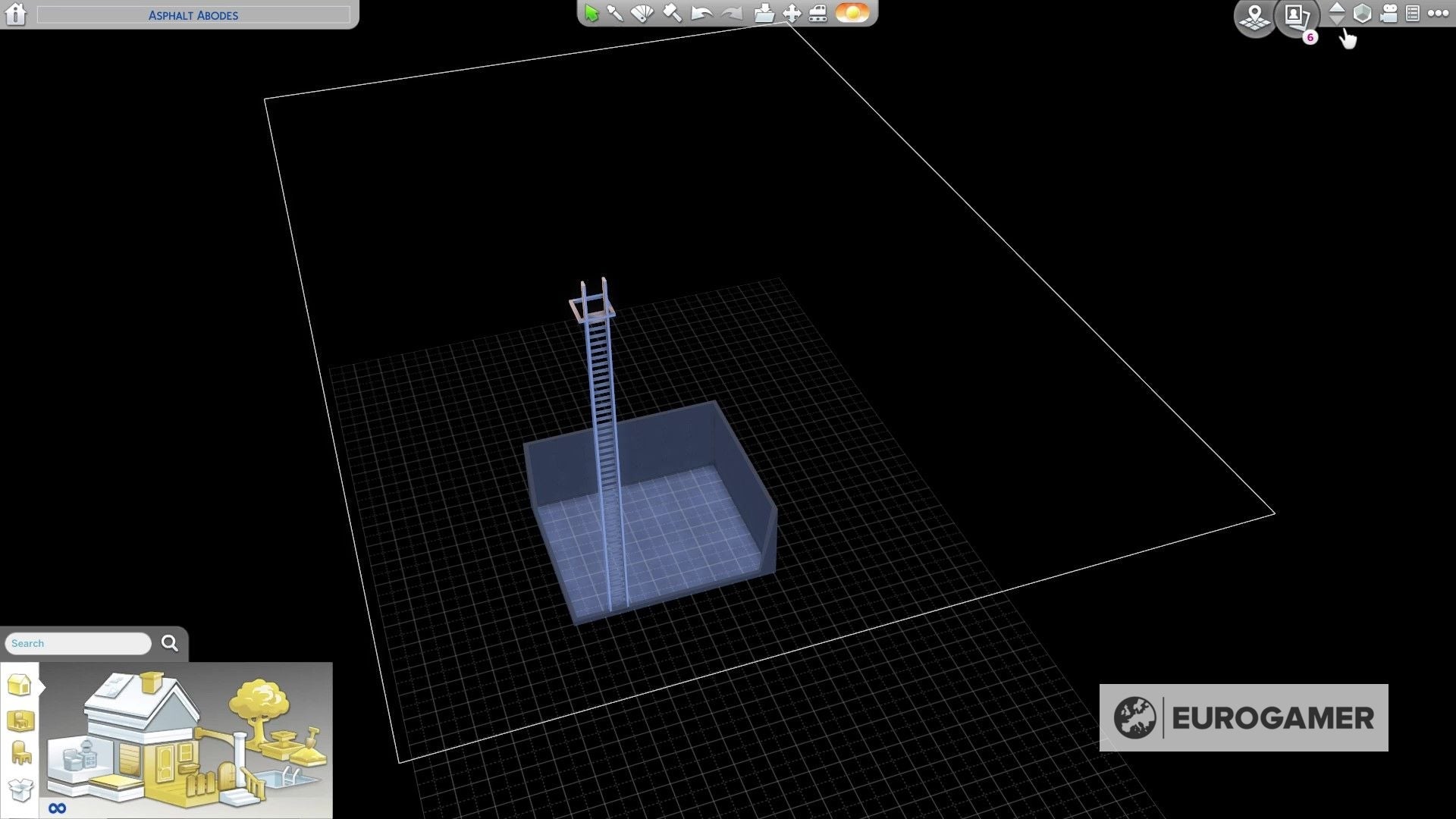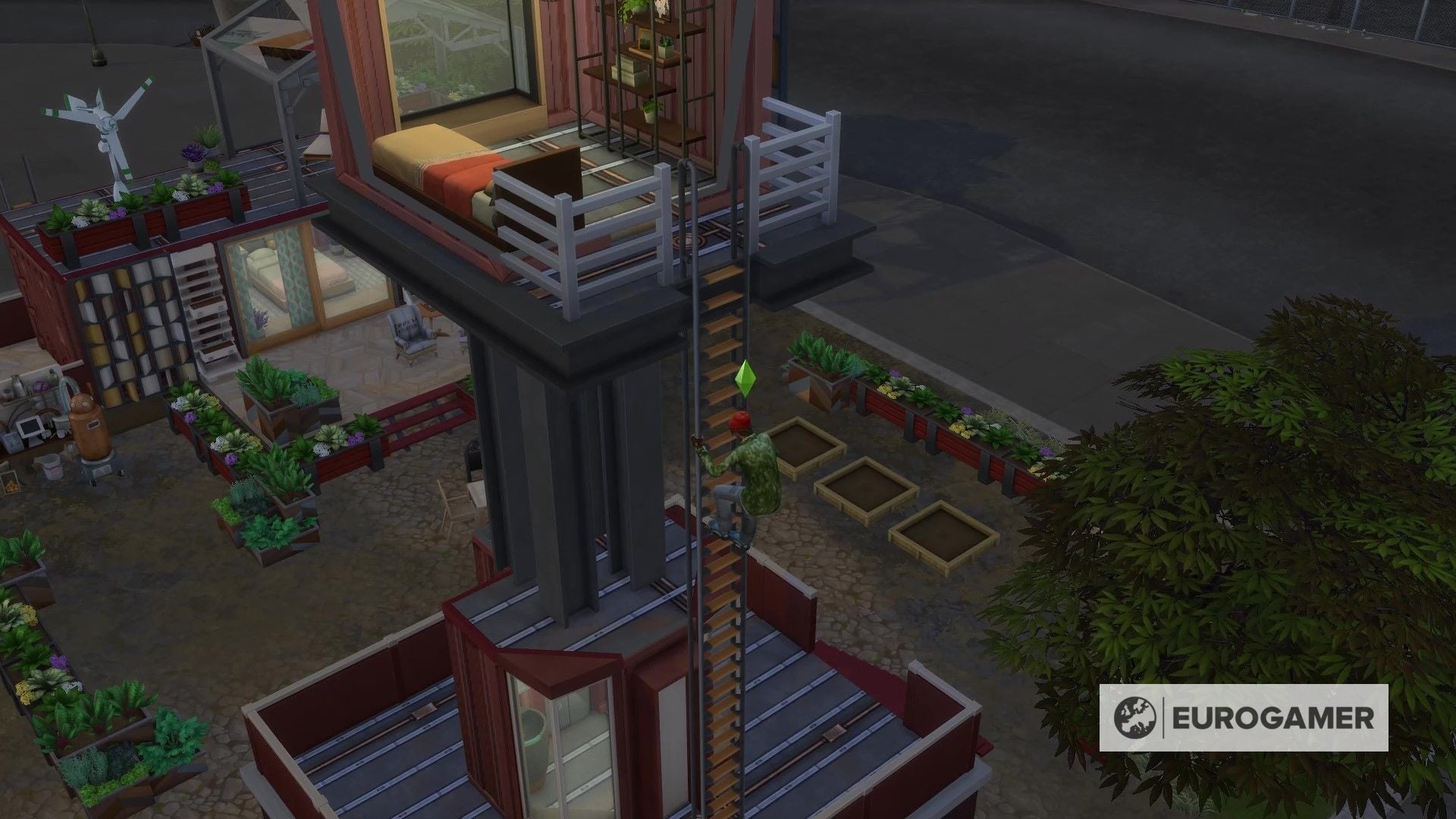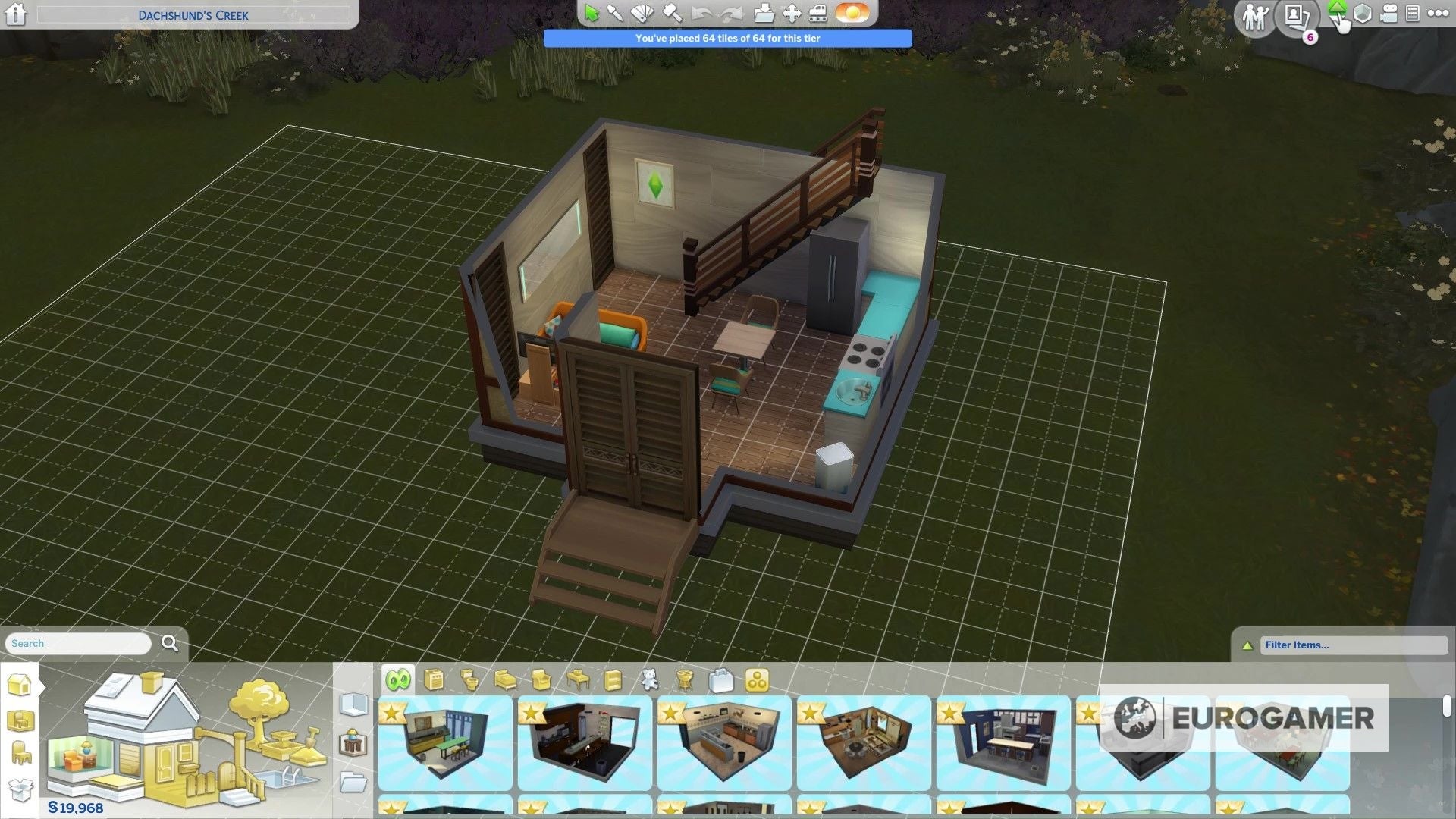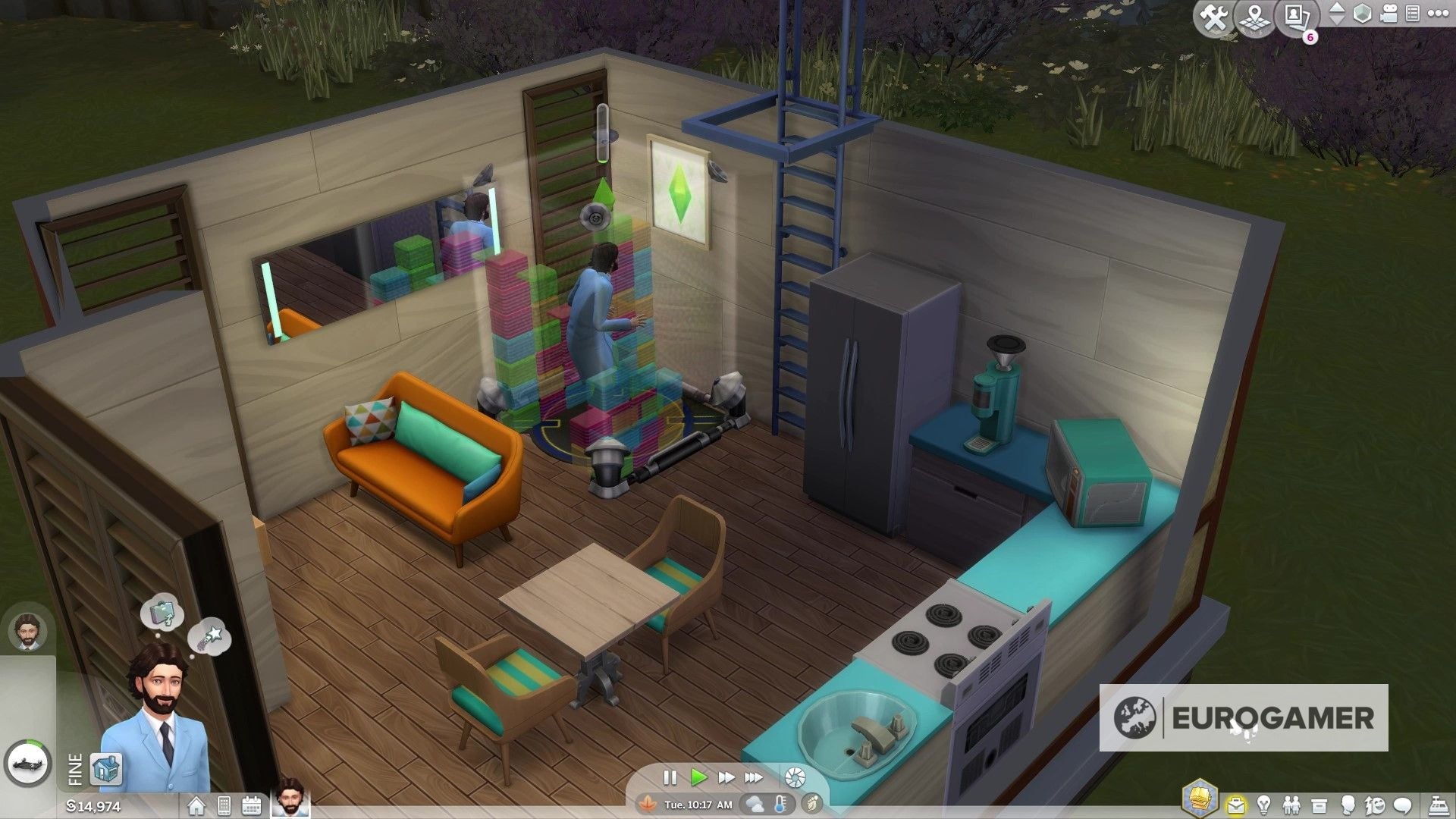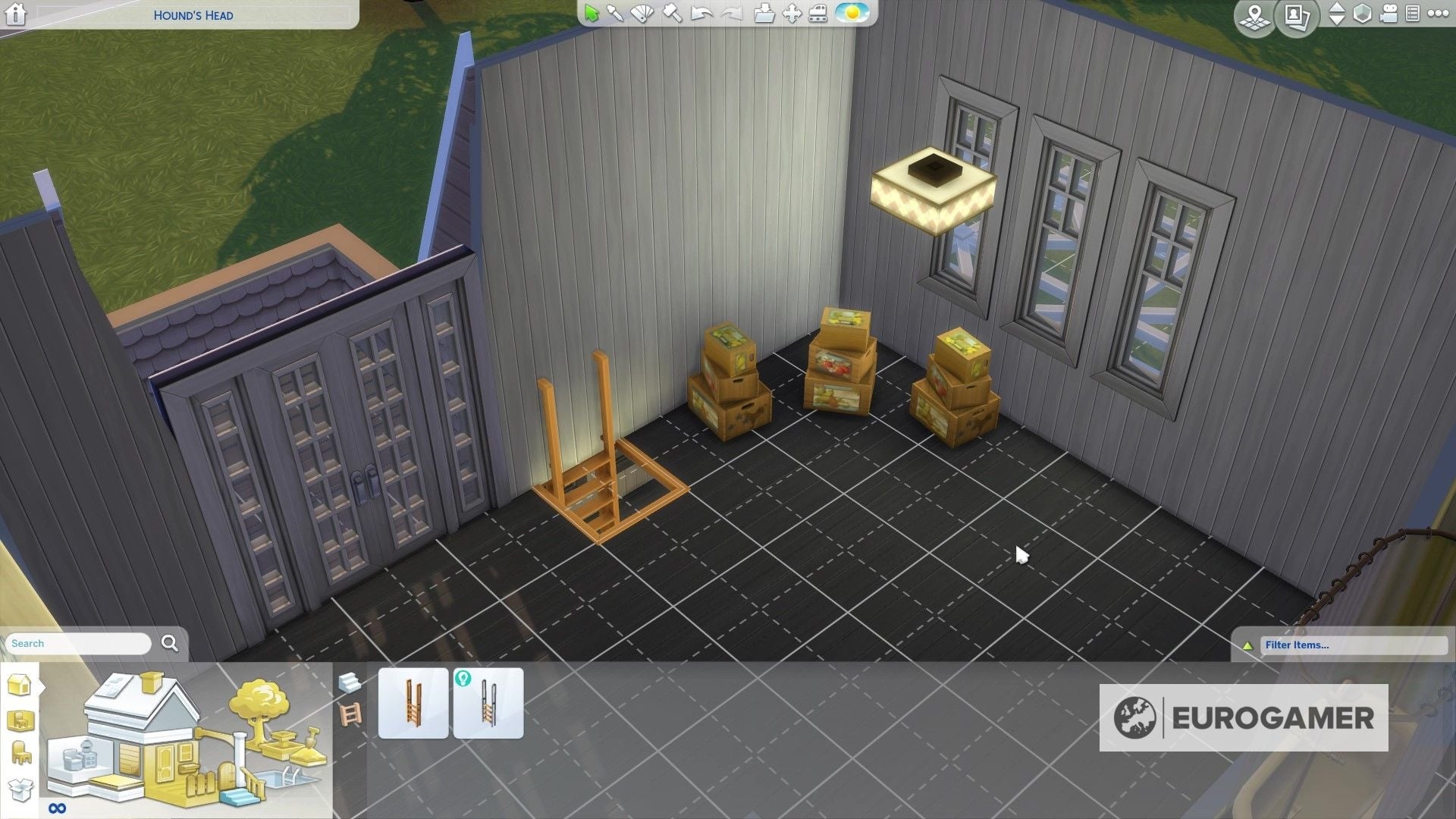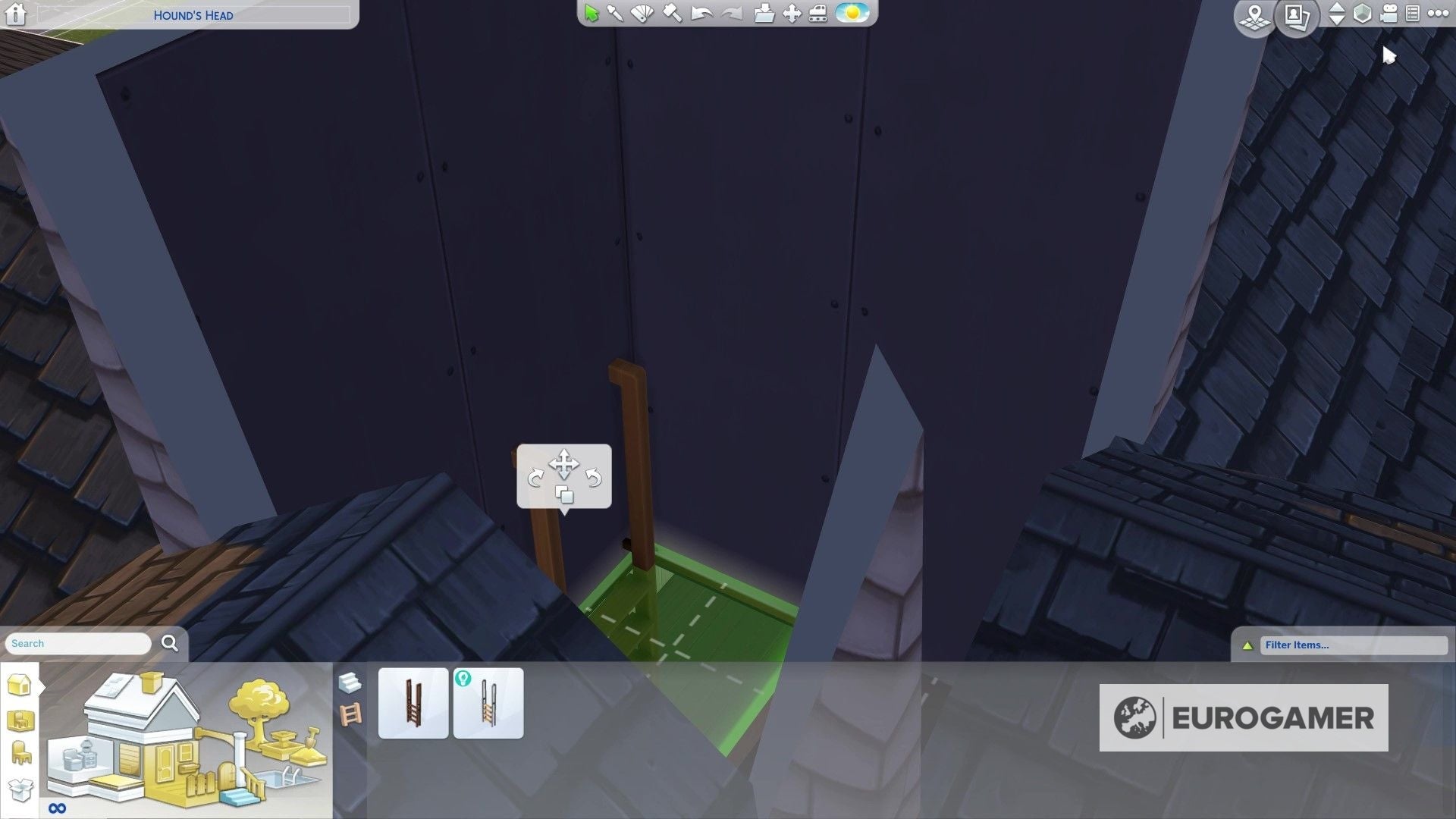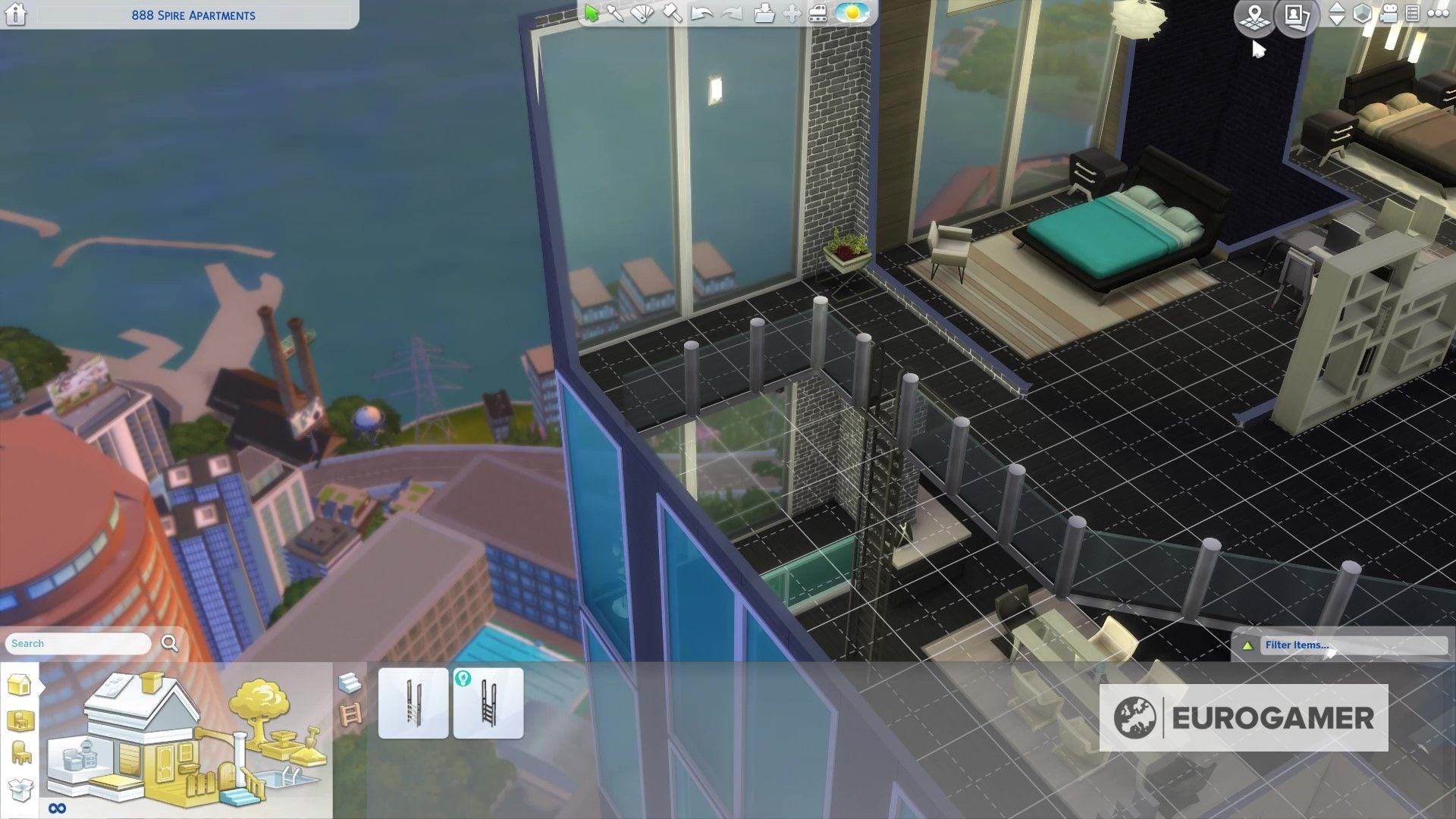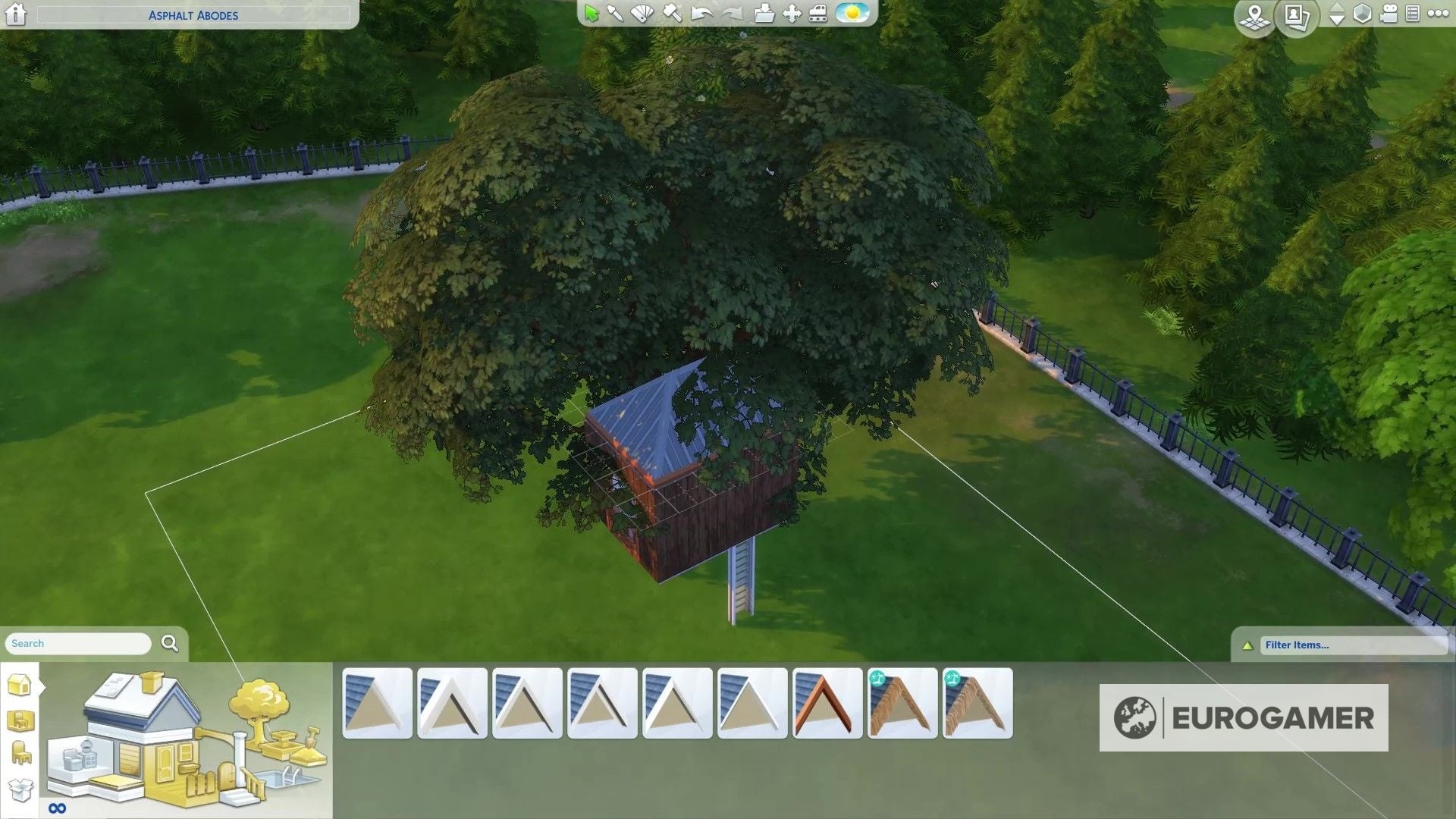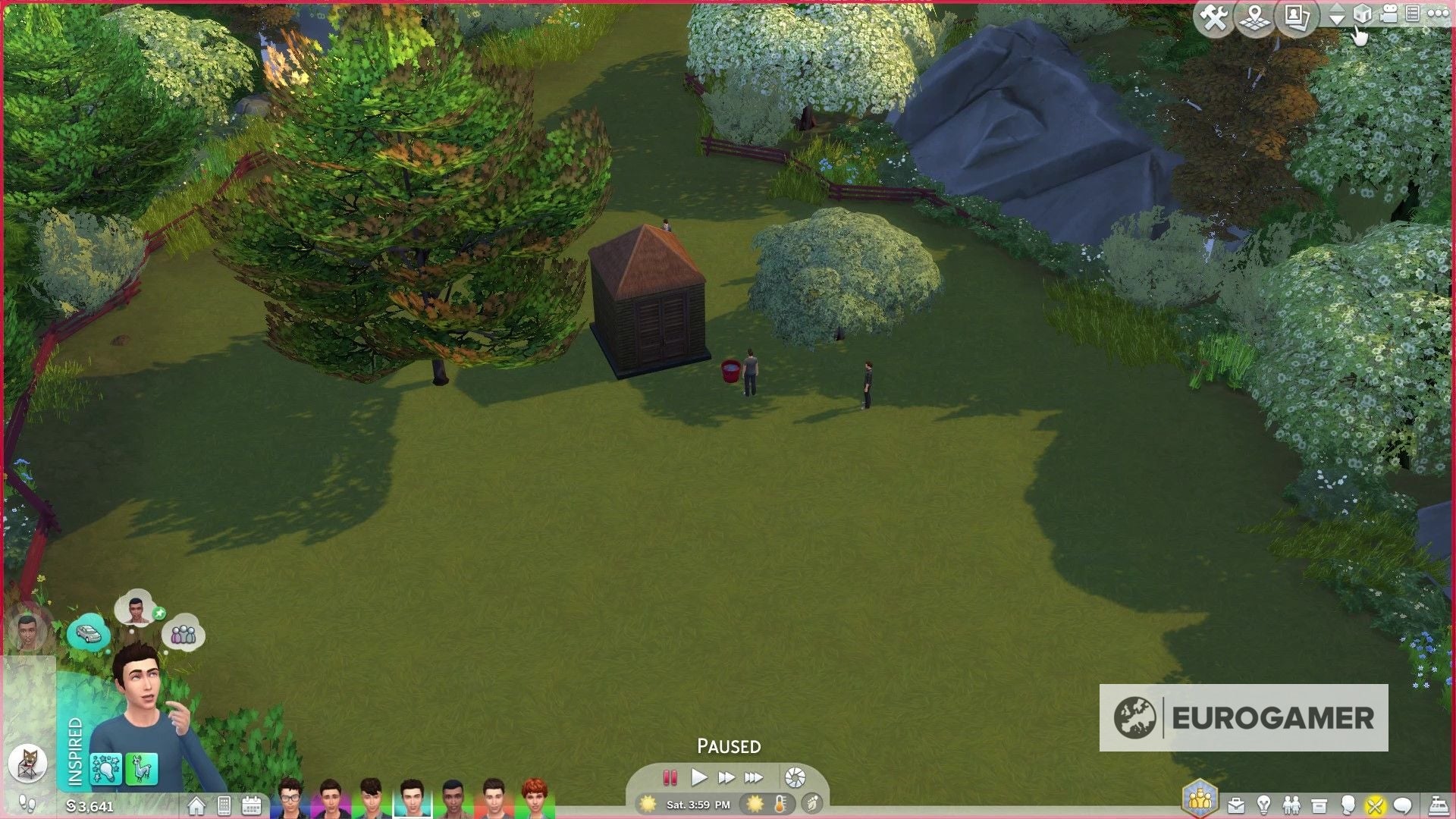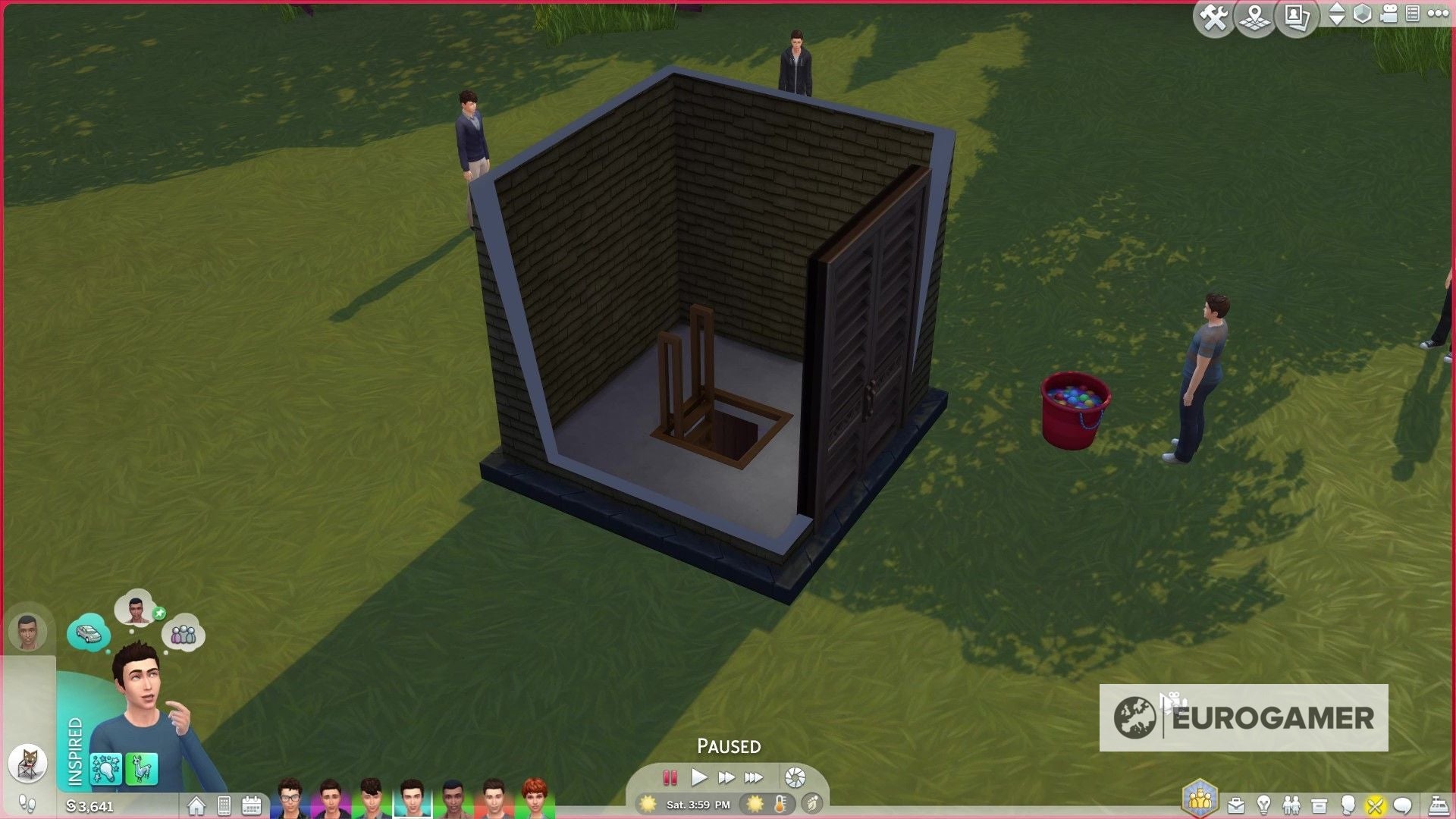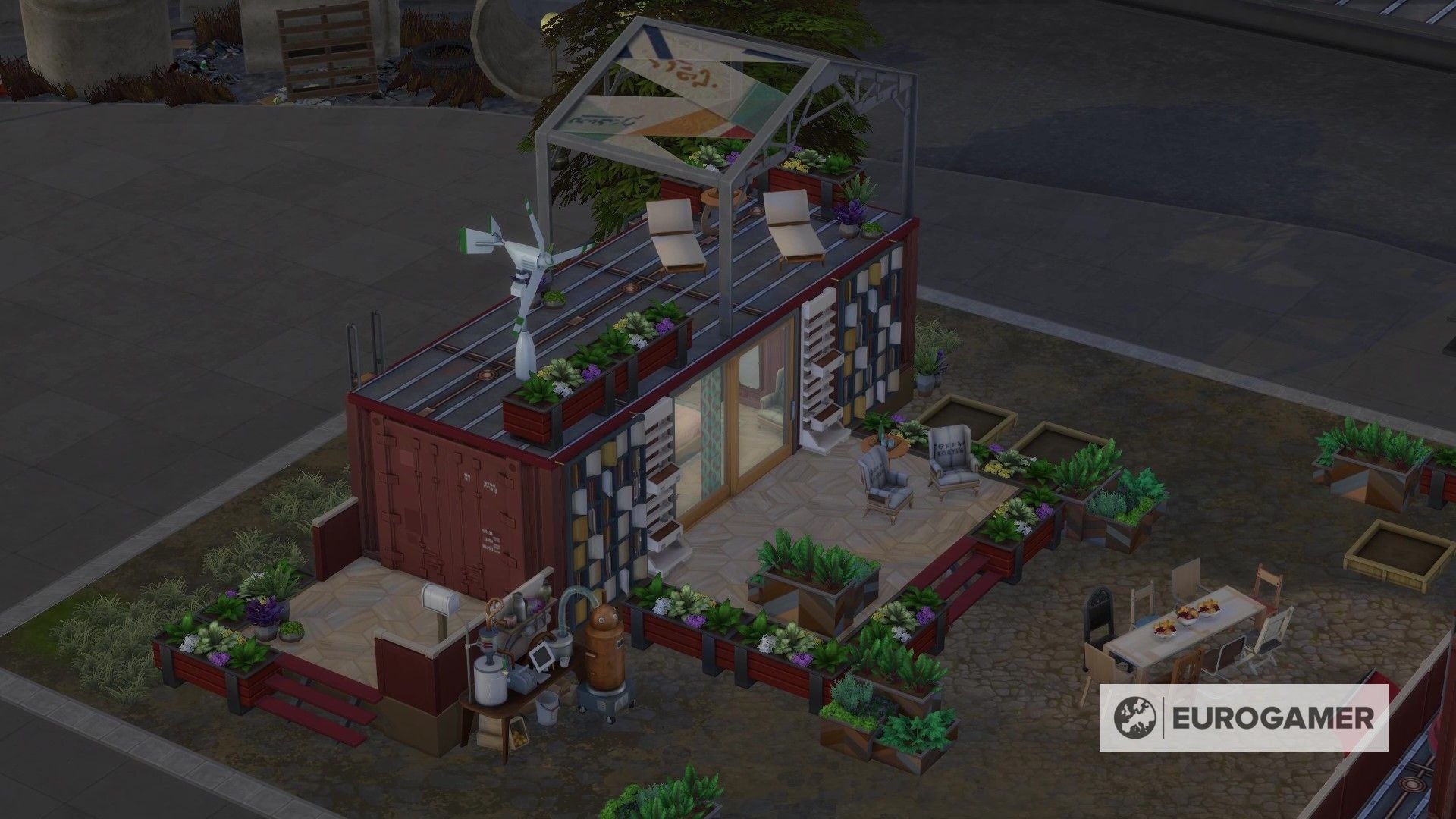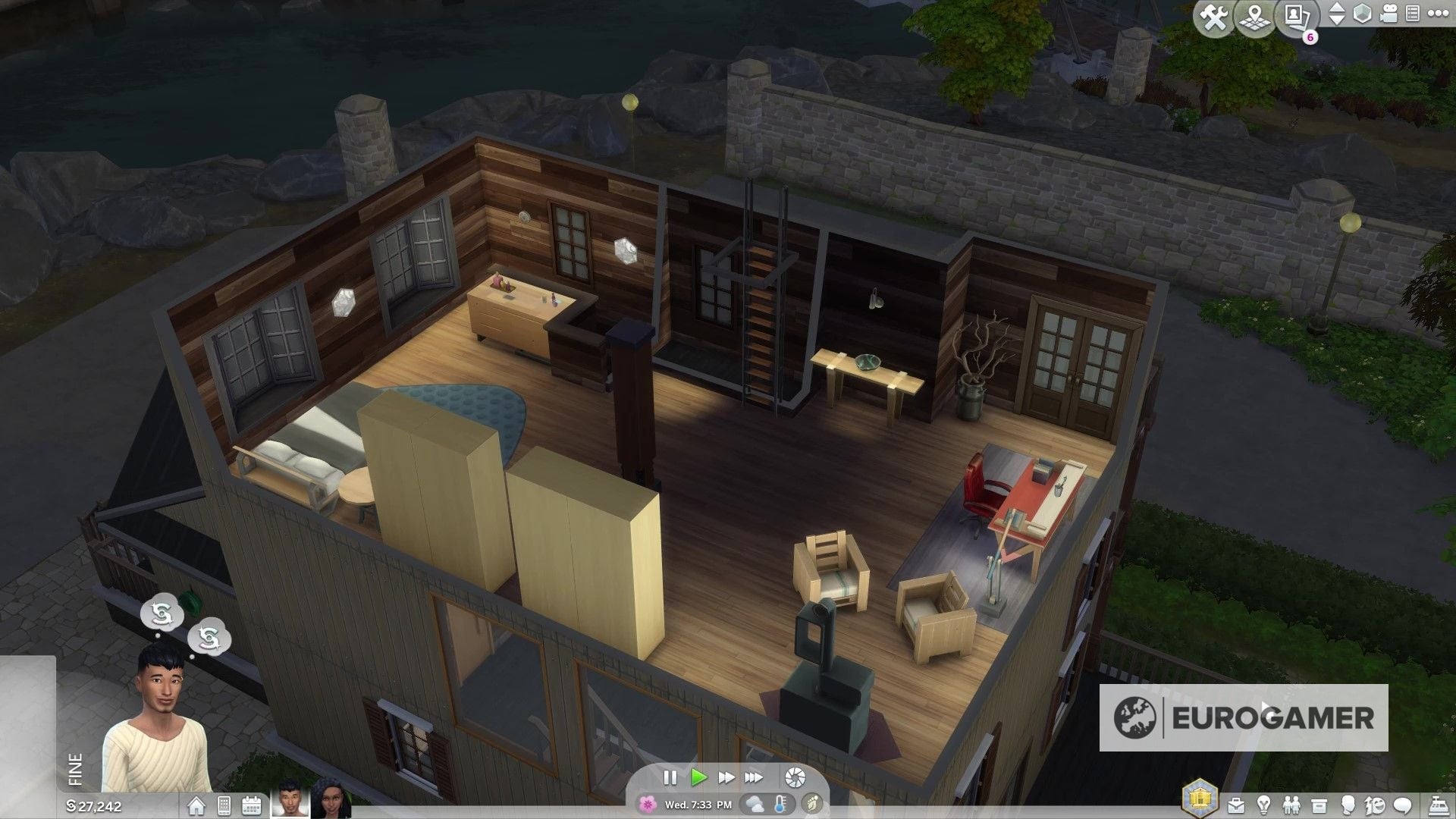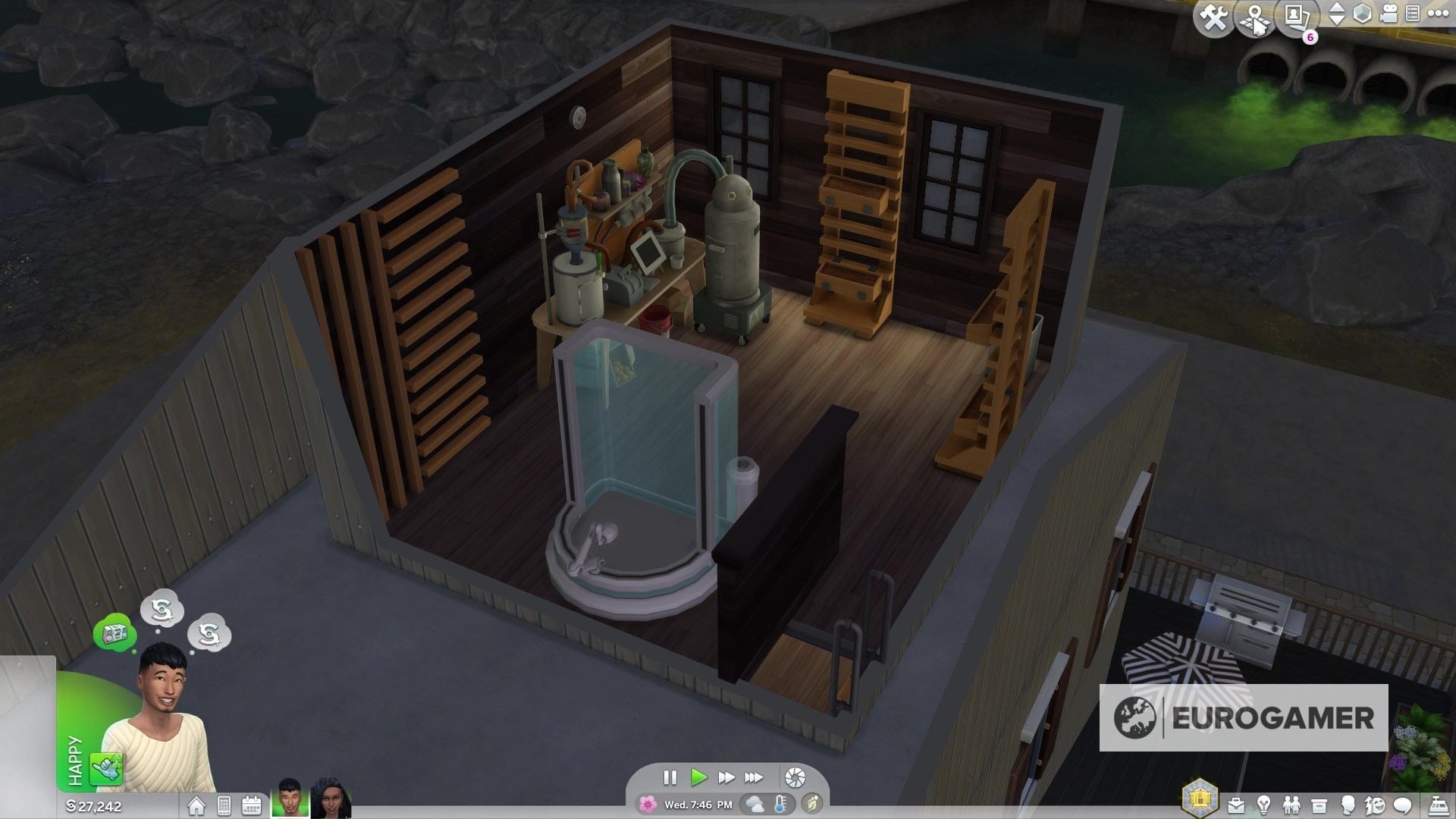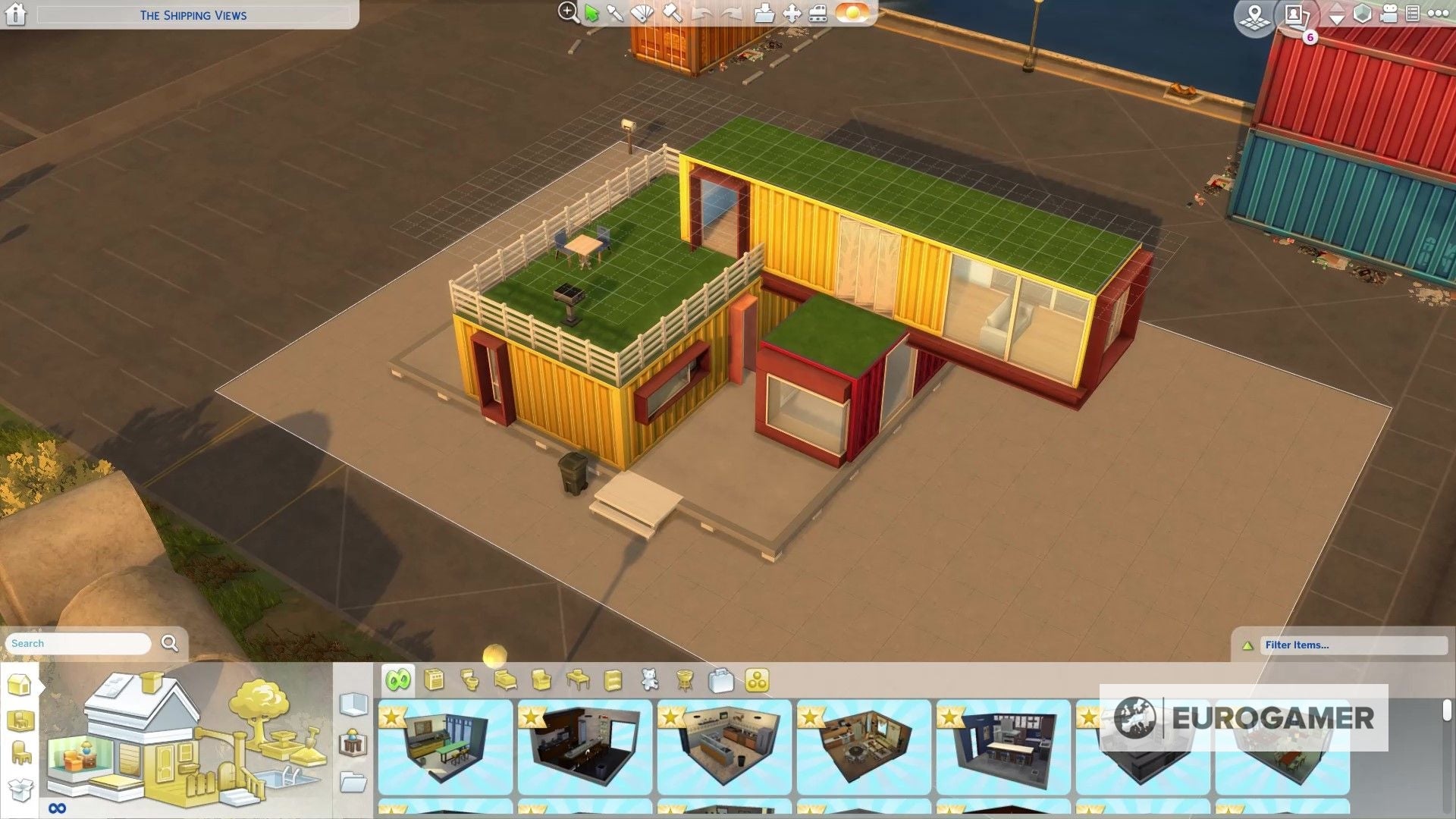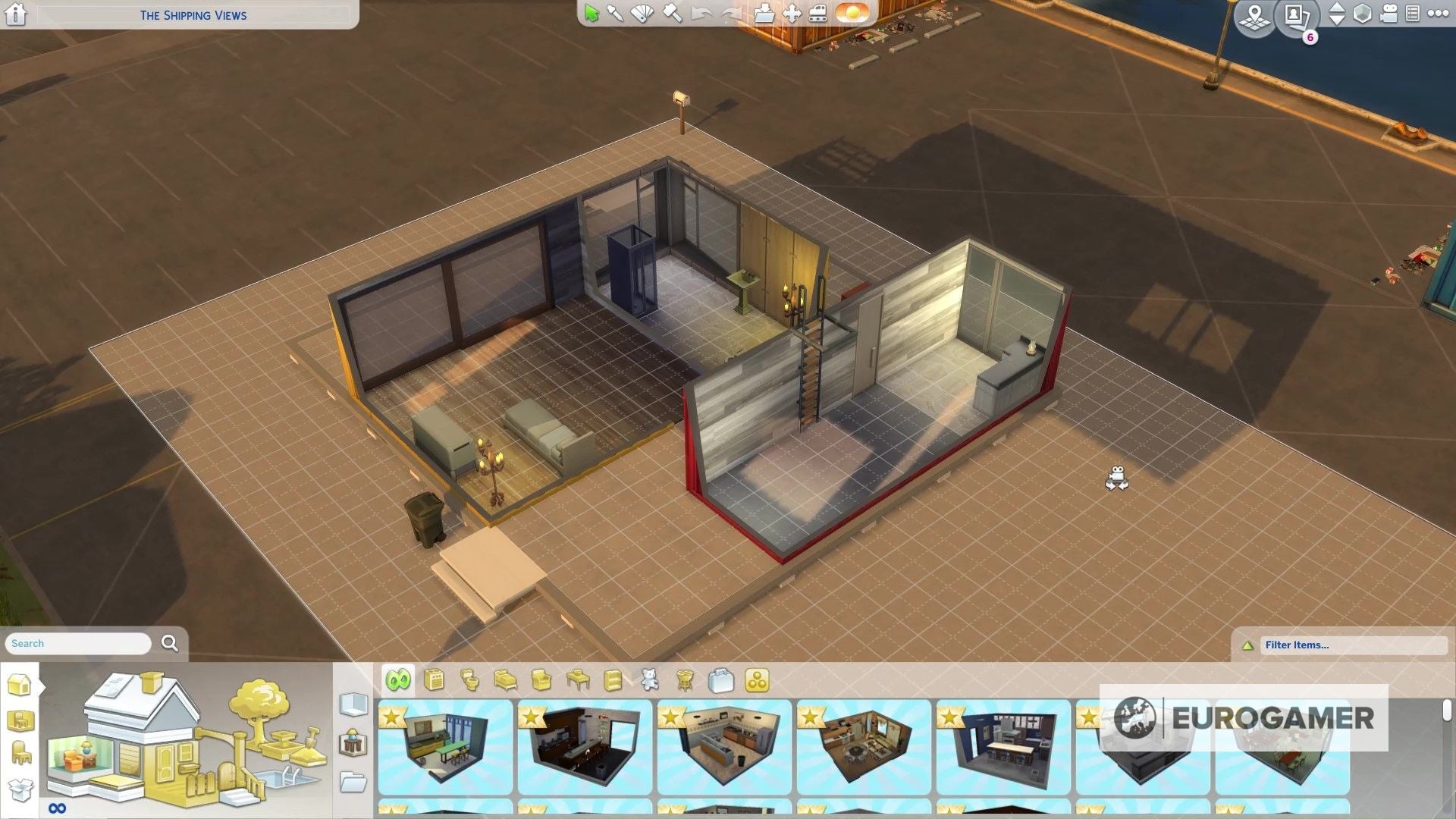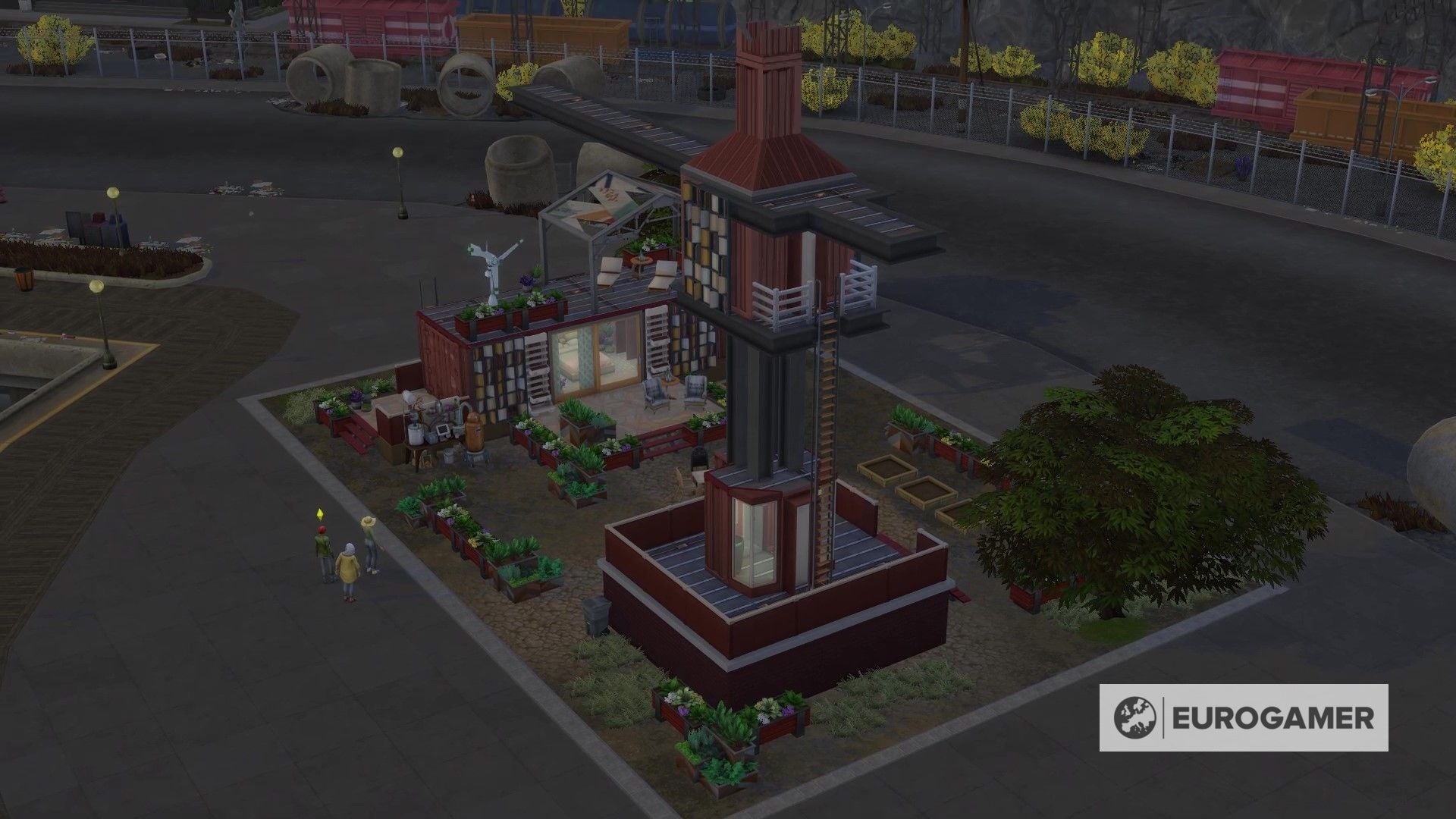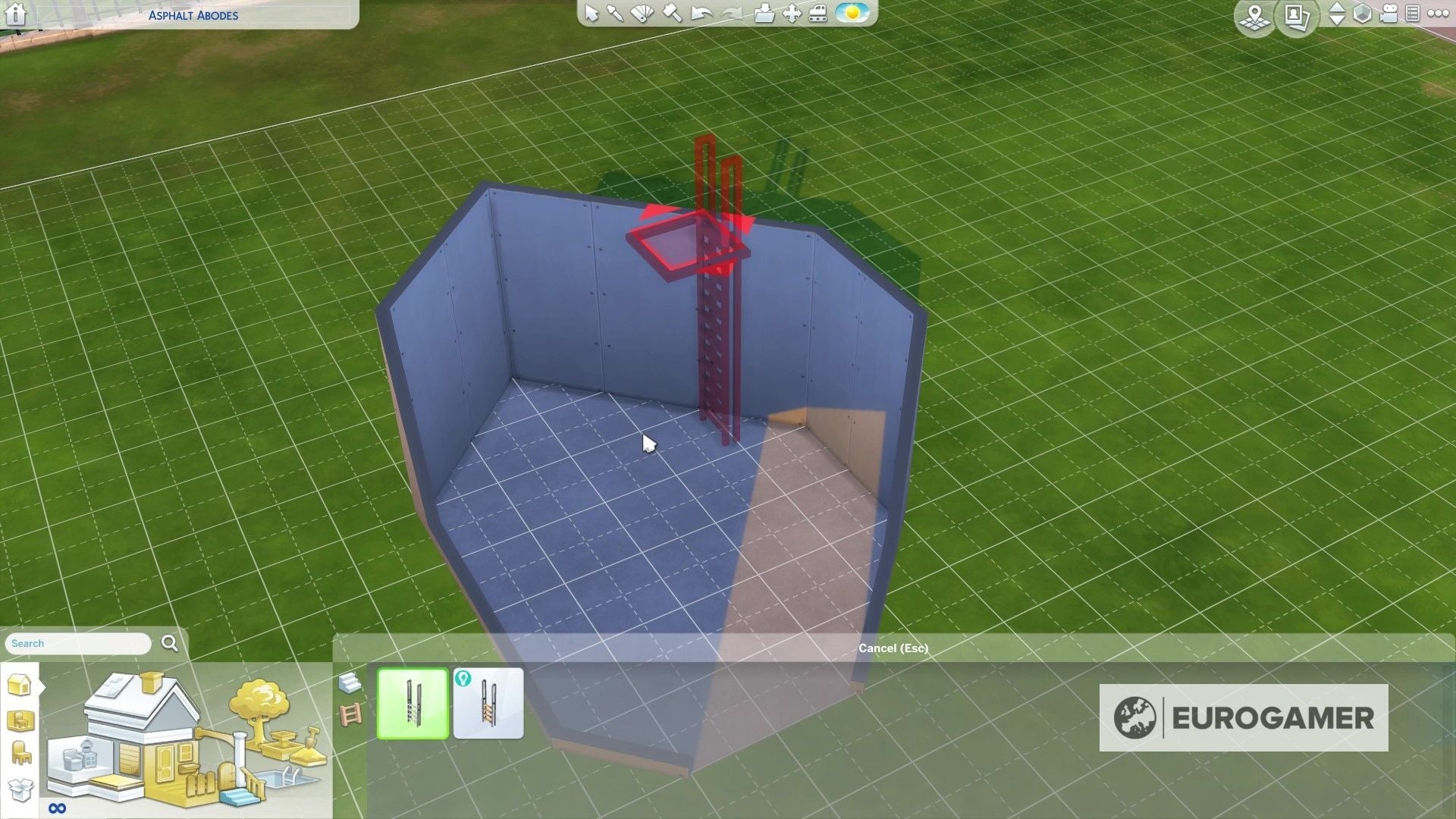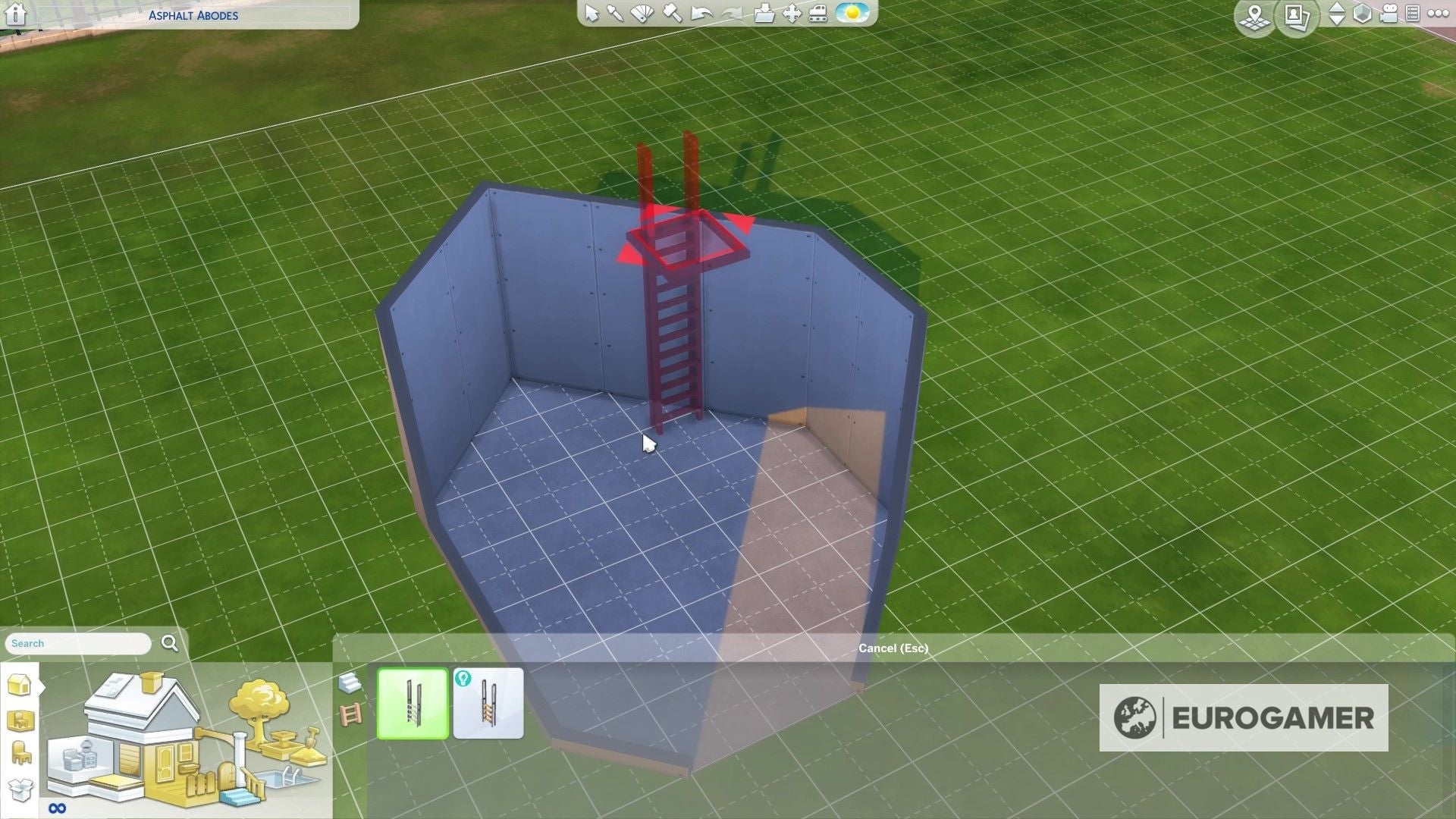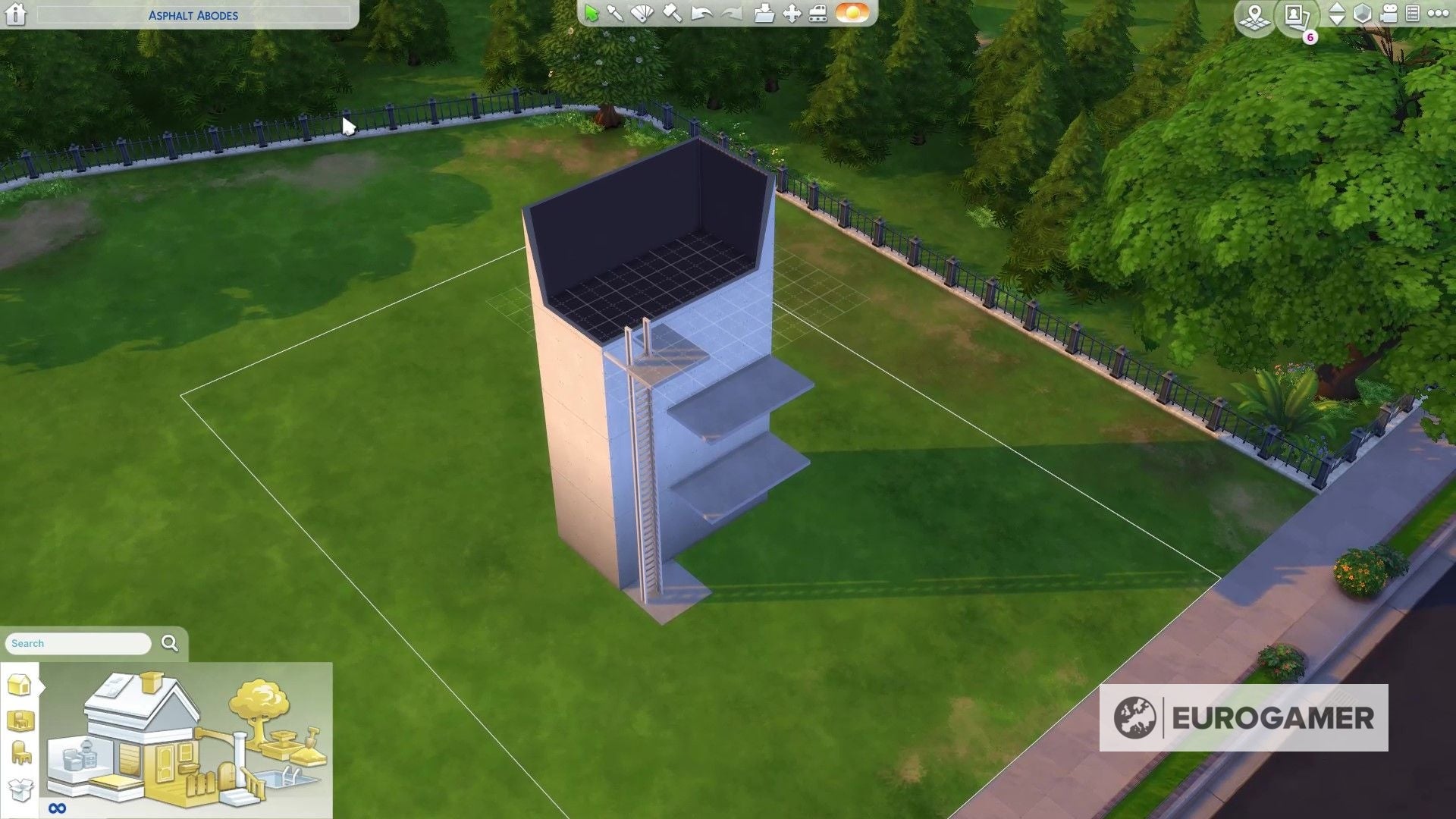With the release of the Eco Living expansion pack across all platforms in June 2020, that wish was granted - and now, The Sims 4 officially has ladders. Even better, a limited but still fully functional selection of ladders has been made available to everyone who owns the base game, via the free update Patch 95. Where can you find ladders in The Sims 4? How do ladders work? What are the benefits to using ladders in your builds, and what are the restrictions on them? This page explains everything you need to know. On this page: Looking for more The Sims 4 help? Our The Sims 4 cheats page to help fast track you to various aspects of the game. Like stairs, ladders can be found in Build/Buy Mode of The Sims 4; in fact, the ‘Stairs’ section of the Build/Buy Menu has been renamed ‘Stairs & Ladders’ to honour their long-awaited inclusion. Everyone who owns The Sims 4 base game, regardless of any add-ons they have installed, will have access to the Classic Wooden Ladder, a basic but functional design zhuzhed up by 16 colour variant swatches. Players with Eco Lifestyle installed will have a second ladder option: the Reclaimed Ladder, which also features 16 colour swatches, including several options for two-tone colour combinations which the Classic Wooden Ladder lacks. The Classic Wooden Ladder can be yours for §8 per section, while the Reclaimed Ladder is a little pricier at §12. Unlike stairs, the actual cost of ladders is pretty easy to calculate: each individually priced section equates to one rung, and it takes 12 rungs to connect an indoor space to the floor above when using the game’s default wall height. So the most basic use of a Classic Wooden Ladder will set you back §96, while the same design using the Reclaimed Ladder comes in at §144. Of course, there are many possible variations that might increase or reduce these costs, but if you’re building with an eye on your Sims’ budget, this is a good formula to remember. The only requirement is an accessible 1x1 floor tile on the upper storey and a 1x1 space on the lower storey directly beneath (each indicated by a glowing green square), which are needed for access. When placing a ladder, its default position will be ascending from the current floor to the floor above. Hold the Ctrl key to place a ladder which descends to the floor below instead. Your Sims won’t even need to be able to access the ladder front-on to use it; they can also enter and exit the ladder from the sides, meaning that you can block access from several directions and still have a usable ladder. When in Build/Buy Mode, green arrows around the ladder indicate which sides Sims are able to access it from. The length of the ladder is determined by the relative heights of the spaces it is connecting. If you increase or decrease the height of a wall or foundation where a ladder is attached, the ladder’s height will automatically change with it. On the other hand, attempting to place a ladder on bare uneven terrain will result in said terrain being flattened out, but only in the 1x1 tile where the ladder connects to the ground. The minimum height of a ladder is four rungs. Thanks to the many creative possibilities of the game’s variable wall heights, and the chance to build upwards using pillars to support higher storeys, there is effectively no maximum height (although presumably at some point the sky is literally the limit). Ladders can span multiple storeys, though only by bypassing access to any floors in the middle (see The Limitations of Ladders, below). The Sims 4’s official floor limit is four above-ground storeys plus four basement levels. So in a four-storey build, it’s possible to connect ground level directly to the top floor - or even to a flat roof, in the case of above-ground builds - via one long ladder. (Less ambitious multi-storey ladders are also a possibility.) The only apparent limitation is the need to attach the top basement floor directly to the lowest above-ground floor - so no nine-storey mega-ladders stretching from the sub-sub-sub-basement to the roof. The other good news is that your Sims have infinite grip strength; don’t worry, the developers haven’t taken the opportunity to sneak in a new “death by falling” (which is out of character for them, but let’s take the win). Tiny houses If you have The Sims 4: Tiny Living Stuff Pack (released a few months back, in January 2020), ladders are a boon for your tiny house builds. Taking up just one floor tile per storey, ladders are far more efficient than stairs when it comes to saving space. Free up that floor space for a better-equipped kitchen, or turn it into something cool like a crafting corner or entertainment area. Attic spaces Ladders can be used to create a more realistic attic space (though note that they can’t be retracted), and open up the previously unusable small spaces under the eaves of many Sim houses for useful conversion. Finally, the Attic Stack Decoration Box from Seasons can be tucked away in an actual attic storage space, without rendering it inaccessible! Lofts apartments If you have City Living and/or Eco Lifestyle installed, ladders can be placed in apartments - assuming the apartment unit spans multiple storeys; allowing for the creation of vertical-access loft spaces. (However, the usual restrictions against editing unowned hallway areas and the exterior walls of apartment buildings still apply, so you can’t create an external fire escape spanning the whole building.) Conversion builds Similar to the above, it’s now possible to create more realistic “converted” living spaces (think a warehouse or a church) where mezzanine levels are often accessible by ladders rather than stairways. Treehouses It might require judicious use of the bb.moveobjects cheat to actually get the tree in position, but thanks to ladders it is now possible to build an elevated platform, accessible without the need to resort to putting in an absolutely huge staircase. Treehouse builds work particularly well with items from the Parenthood game pack and the Kids’ Room stuff pack… but we’re not judging if your adult Sims want in on the fun too. Hidden bunkers While it’s always been possible to place the majority of your building below ground level in The Sims 4, the introduction of ladders makes it even easier to conceal the entryway to your secret clubhouse or underground bunker in an inconspicuous-looking place. Roof gardens Fitting with the green theme of Eco Lifestyle, what’s the point of leaving a perfectly good roof space sitting empty? Flatten out a walkway, run a ladder up there, and make it a pleasant place for your Sims to relax and socialise; build skills; and convert renewable energy with wind turbines, dew collectors, and solar panels. Pre-made examples If you’re looking for in-game inspiration on how to put ladders to good use, check out the Port Promise neighbourhood of Evergreen Harbor, the new world introduced in the Eco Lifestyle expansion pack. All three residential properties there demonstrate the versatility of ladders in builds:
The Old Mill (home to the Sterling-Rico family) is styled as a converted lumber mill, with a narrow vertical area on the top floor made accessible via ladder.
The Portsmouth Promenade (home to the Greenburg family) consists of two structures: one styled on a converted shipping crate, the other on a converted crane. The crane makes particularly cunning use of a ladder that spans several storeys, while the shipping crate features a nifty roof garden with vertical access.
The Shipping Views (uninhabited by default) is designed around a series of converted shipping containers stacked together, with ladders connecting the various boxes and a second storey only accessible via ladder.
Our The Sims 4 cheats can help you fast travel your way to all sorts of bonuses in the game. Meanwhile, if you have expansions, we can help with becoming a werewolf, Fabrication in Eco Living, Tiny Living, how to become a Mermaid, how to become a Spellcaster, High School and attending prom and University Degrees and Distinguished Degrees. In June 2020, we also saw the free addition of ladders in The Sims 4. They might even (dare we say it) cause a few if you’re not careful. Consider the following restrictions and potential issues when using ladders in your Sims builds:
Ladders can’t intersect with doors. This means that the tile of floor space where a ladder sits cannot occupy the same space as a door, even though it might look like it could just about work in the real world (though it’d be a significant health and safety hazard, presumably). You also can’t get around this by placing an empty door frame there using the bb.moveobjects cheat - it’ll look more the part, but the game doesn’t recognise door frames as having a different function from doors, and so your Sims won’t actually be able to interact with either the ladder or the opening. Like stairs, ladders can only be rotated 90 degrees. Unlike many Build/Buy objects in The Sims 4 which can rotate through 45 degree increments. Unfortunately, this does mean that ladders can’t be placed against diagonal walls, or arranged at a jaunty angle.
Unlike stairs, the width of ladders is fixed at one tile wide, and can’t be expanded. The ladders introduced in Eco Lifestyle and Patch 95 can’t be used on swimming pools. The game treats pool ladders as a completely different type of object, which can still be found under the ‘Pools & Open Water’ section of Build/Buy Mode. A single ladder can’t service multiple landings. While it’s possible to build a ladder that connects, for example, the ground floor to the third floor by bypassing the second floor, that ladder can’t connect all three floors with jumping-off points at each. So if you want to build a fire escape, say, you will need to stagger rather than stack individual ladders connecting each pair of floors so that they don’t sit directly on top of one another.
Toddlers, dogs, and cats can’t use ladders; nor can an older humanoid Sim carry them up ladders. Bear this in mind when building areas that can only be accessed via ladder (though, if your Sim is looking for some breathing space from their pets and/or younger kids, this might be considered a feature rather than a bug). Ladders are a functional building item just like stairs, used to connect floor tiles on different storeys together. As such, they can’t be used as freestanding modifications to furniture. This means you can’t use these particular ladders to create bunk beds - sorry, Sims community, we know you were hoping for them too!
